
The global authority in superyachting
- NEWSLETTERS
- Yachts Home
- The Superyacht Directory
- Yacht Reports
- Brokerage News
- The largest yachts in the world
- The Register
- Yacht Advice
- Yacht Design
- 12m to 24m yachts
- Monaco Yacht Show
- Builder Directory
- Designer Directory
- Interior Design Directory
- Naval Architect Directory
- Yachts for sale home
- Motor yachts
- Sailing yachts
- Explorer yachts
- Classic yachts
- Sale Broker Directory
- Charter Home
- Yachts for Charter
- Charter Destinations
- Charter Broker Directory
- Destinations Home
- Mediterranean
- South Pacific
- Rest of the World
- Boat Life Home
- Owners' Experiences
- Interiors Suppliers
- Owners' Club
- Captains' Club
- BOAT Showcase
- Boat Presents
- Events Home
- World Superyacht Awards
- Superyacht Design Festival
- Design and Innovation Awards
- Young Designer of the Year Award
- Artistry and Craft Awards
- Explorer Yachts Summit
- Ocean Talks
- The Ocean Awards
- BOAT Connect
- Between the bays
- Golf Invitational
- Boat Pro Home
- Superyacht Insight
- Global Order Book
- Premium Content
- Product Features
- Testimonials
- Pricing Plan
- Tenders & Equipment

Yacht classification definitions
The merchant shipping sector is ruled by safety regulations developed since the beginning of the 20th century, and is familiar with international conventions such as SOLAS, MARPOL and Load Lines. But the application of common safety requirements to pleasure vessels is something relatively new – a continuous work in progress – and is very much dependant on the service and the flag of the yacht.
Defining the problems
Definitions do not help. How often have we read of large yachts, superyachts, megayachts, gigayachts or other bombastic adjectives? How many times have we mentioned MCA, RINA, and Lloyd’s, without having a clear idea of who’s doing what?
A good starting point for understanding the subject is to clarify the main definitions and the roles of the main players:
Large yacht
A large yacht is a pleasure vessel with a load line length equal to or over 24m. Almost all the flag administrations have adopted safety codes dedicated to large yachts and this is, therefore, the only definition having a universal meaning in the international regulatory framework of yachts.
Commercial yacht
A motor or sailing vessel in commercial use (i.e. charter) for sport and pleasure, carrying no cargo and not more than 12 passengers.
Private yacht
A pleasure vessel solely used for the recreational and leisure purpose of its owner and his guests.
Flag administration
The government of the state whose flag the yacht is entitled to fly . This administration sets the safety regulations, manning requirements and fiscal aspects relevant to the yacht registration.
Different flag administrations can inspect the safety aspects of yachts with their own inspectors (see MCA for example) or delegate this activity partially or totally to other recognised bodies such as the classification societies.
The main flag authorities in the yachting industry are: The UK-MCA, Cayman Islands, Isle of Man, Malta, the Marshall Islands, Italy and Luxembourg.
Classification societies
Organisations that establish and apply technical standards in relation to the design, construction and survey of ships.
Classification rules are developed to assess the structural strength and integrity of the essential parts of the hull, the reliability and function of the propulsion, steering systems, power generation and all the other features installed on board which contribute to guarantee the main essential services.
In addition to this ‘third party check’ function, class societies carry out statutory duties on behalf of the major flag administrations in accordance with specific delegation agreements signed with each government.
The main class societies involved in yachting are: American Bureau of Shipping, Bureau Veritas, Det Norske Veritas, Germanischer Lloyd, Lloyd’s Register, and RINA.
Large yachts: Applicable rules and certificates
Private yachts
The mandatory requirements for these boats are very light. For the majority of flag states, a registration survey and a tonnage measurement, carried out by an authorised surveyor, are sufficient.
The only mandatory international conventions are those relevant to the marine environment: MARPOL and the Anti-Fouling System Convention.
The International Convention for the Prevention of Pollution from Ships (MARPOL) is intended to eliminate the intentional pollution and to minimise the accidental pollution of the marine environment caused by harmful substances.
The Anti-Fouling System Convention’s purpose is to eliminate the presence of harmful substances for the marine environment contained in anti-fouling paints applied to ships.
Classification
While classification is not mandatory, building and maintaining a private yacht in class is the only evidence that the boat has been designed, constructed and operated in compliance with appropriate technical standards. It is therefore highly desirable, especially in relation to insurance and re-sale purposes.
Commercial yachts
All flag administrations require commercial yachts to be certified in accordance with a specific large yacht safety code.
The most popular of these safety codes, and the first that was developed, is the MCA Large Commercial Yacht Code (LY2) published in 2004. It replaced the Code of Practice for the Safety of Large Commercial Sailing and Motor Vessels (LY1) published in 1997.
LY2 is applied by the Red Ensign Group Flags (UK, Cayman Islands, Isle of Man, Bermuda, Gibraltar, British Virgin Islands, etc.) and is recognised as a reference standard for all the yachting industry.
Other flags have developed similar codes. Luxembourg, Italy, Marshall Islands, Malta, Belize and The Netherlands are some examples.
While introducing a stricter set of rules and regulations compared to private yachts, commercial registration offers yacht owners the possibility of making a profit from the chartering activity of their boats, and allows them to take advantage of all the other benefits of a commercial operation (in particular VAT exemption on the purchase, sale, bunkering, provisions, dry-docking, and others).
Mandatory certificates
The number and type of the mandatory certificates depends on the size of the vessel; the following is an indicative list:
- International Tonnage Certificate : A measurement of the internal volumes of the yacht expressed in gross tons (GT). This measurement should not be confused with displacement tonnage, which quantifies the weight of a vessel.
- Large Yacht Code Certificate : Covers life-saving appliances, fire protection and means of escape, navigational and signalling equipment, intact and damaged stability, manning and crew accommodation.
- Class Certificate : This mainly deals with the yacht’s hull, machinery, electrical equipment and outfitting.
- International Load Line Certificate : This certifies the weather-tightness of the yacht.
- Safety Radio Certificate : This is applicable if gross tonnage exceeds 300GT This concerns the radio communication and distress installations.
- MARPOL Annex I Certificate : This is applicable if gross tonnage exceeds 400GT This deals with the disposal of oil and bilge water from machinery spaces.
- MARPOL Annex IV Certificate : This is applicable if gross tonnage exceeds 400 or the yacht is certified to carry over 15 persons. This deals with the disposal of sewage from ships.
- MARPOL Annex V : This is applicable to all ships. It covers the disposal of rubbish.
- MARPOL Annex VI : This is applicable if gross tonnage exceeds 400GT as well as to all main and auxiliary engines with a power exceeding 130kW. It concerns the emissions from main and auxiliary engines (NOx and SOx).
- Safety Construction and Safety Equipment : These are additional prescriptions on machinery, electrical parts, life-saving and navigational equipment for yachts with a gross tonnage above 500GT.
- International Safety Management Certificate : This is only applicable to yachts having a gross tonnage greater than 500GT. A certified management company is requested to carry out this service, preparing operational manuals, procedures for drills, and taking care of the maintenance of the yacht and its installations.
- International Ship and Port Security Certificate : This is only applicable to yachts having a gross tonnage greater than 500GT and deals with the anti-piracy certification. A certified management company is requested to provide the ashore assistance and establish on-board procedures and operational manuals.
The GT Factor
The gross tonnage value (GT) is a key issue, not only as a reference for the registration fees applied by the different flag administrations, but also because it determines whether an international convention, rather than a particular safety standard, applies to a yacht.
The table below summarises how the conventions and relevant certificates come into force depending on the gross tonnage of the yacht. In particular, the following values may have a critical impact:
300GT: In many codes, when you reach this value the yacht must be certified in unrestricted service (stricter requirements regarding stability, load line and life-saving appliances).
400GT: This is the threshold for almost all the environmental conventions such as MARPOL and Anti-fouling System.
500GT: This is the threshold for the application of the SOLAS Convention, meaning stricter requirements on machinery, safety systems, materials of construction, fire protection, life-saving appliances and navigational equipment. Furthermore an external certified management company is requested for the ISM and ISPS certifications.
The tonnage issue could also arise on existing yachts when undertaking major refits or modifications, in that any change to the internal volumes of the boat – such as adding enclosed deckhouses or superstructures, or modifying the hull transom or bow – will modify the tonnage value with the risk of subjecting the yacht to stricter mandatory rules.
UPDATE: Since this article was originally published, LY2 has been superseded by Large Commercial Yacht Code Revision 3 (LY3) .
More stories
Most popular, from our partners, sponsored listings.
What is a Private Yacht vs. Charter Yacht?
In the vastness of our blue planet, the realm of the ocean is a place of awe and mystery. And just as we've tried to understand the creatures that inhabit it, humanity has developed vessels to traverse its vastness. Among these, yachts have emerged as the epitome of opulence and intimacy with the seas. To truly appreciate the yacht's position in the maritime ecosystem, one must delve into the intricate differences between private and charter yachts.
In the vast tapestry of marine vessels, private yachts stand as a testament to personal luxury and bespoke design. They are not merely boats, but rather symbols of status, passion, and the desire for unparalleled freedom on the water.
Anatomy of a Private Yacht
Each private yacht is akin to a unique species in the animal kingdom, where every minute detail reflects the owner's preferences and dreams. From the sleek curves of the hull to the exquisite interiors, a private yacht is truly a habitat built to an owner's exacting specifications.
Many owners choose to keep these vessels as private sanctuaries, unseen and unknown to the general populace. They provide an escape, a connection to the ancient and vast rhythm of the ocean, away from the cacophony of daily life.
The Ethos Behind Private Ownership
Possessing a private yacht is not just about economic capability. It is about the deep-seated human desire to connect with the ocean, to tame it, and yet, to be humbled by its vastness. Much like a birdwatcher derives satisfaction from a rare sighting, a yacht owner rejoices in the solitude and tranquillity their vessel provides.
The Wonders of Charter Yachts
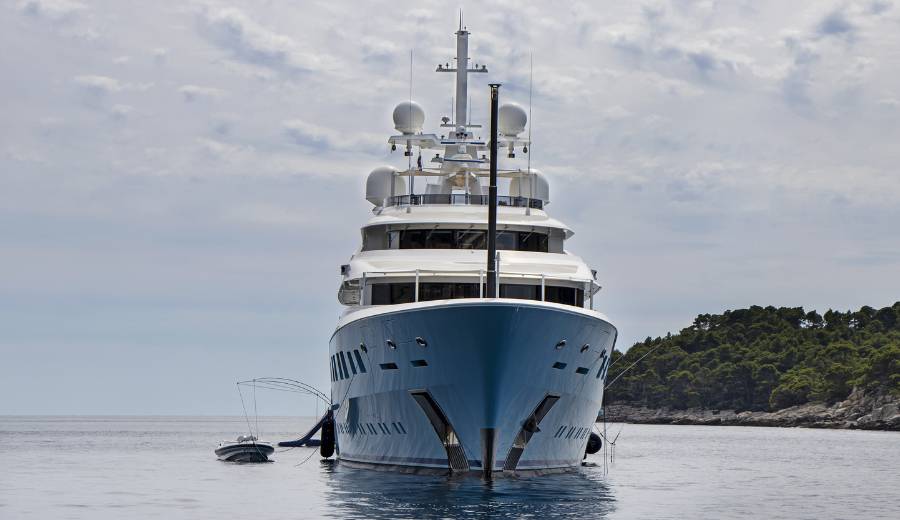
In contrast to their privately-owned counterparts, charter yachts embody a different, yet equally fascinating, approach to sea exploration. They represent the democratization of luxury, where the splendors of yachting are accessible to more than just the fortunate few.
The Composition of a Charter Yacht
Charter yachts are often built with a broader appeal in mind. Think of them as the migratory birds of the yacht world. They are designed to be adaptable, accommodating the needs and tastes of various guests throughout the seasons.
While they might not carry the extreme personal touch of a private yacht, charter vessels are by no means any less opulent. They are equipped with state-of-the-art facilities, luxurious amenities, and often come with a skilled crew adept at ensuring an unforgettable nautical experience for their guests.
The Philosophy of Chartering
Chartering allows individuals to dip their toes into the vast world of yachting without the long-term commitment of ownership. It offers a glimpse into the lavish lifestyle, a temporary sojourn into a realm where the horizon meets luxury.
Furthermore, chartering allows these magnificent vessels to be in constant rhythm with the sea, rather than being docked and dormant. It's a symbiotic relationship, where the boat thrives on its utilization and guests relish in its offerings.
Choosing between a private yacht and a charter yacht is akin to choosing between adopting a pet or visiting a wildlife sanctuary. Both offer profound experiences, yet they cater to different desires and commitments.
Those who yearn for a vessel that echoes their heartbeat, that serves as an extension of their identity, will naturally gravitate towards private yachts. It's about owning a slice of the ocean, a personal haven that can be visited at whim.
On the other hand, those who seek variety, who yearn to experience the myriad facets of yachting without the strings of ownership, will find solace in chartering. It's about tasting the many flavors the sea has to offer, one charter at a time.
Financial Implications: The Silent Current
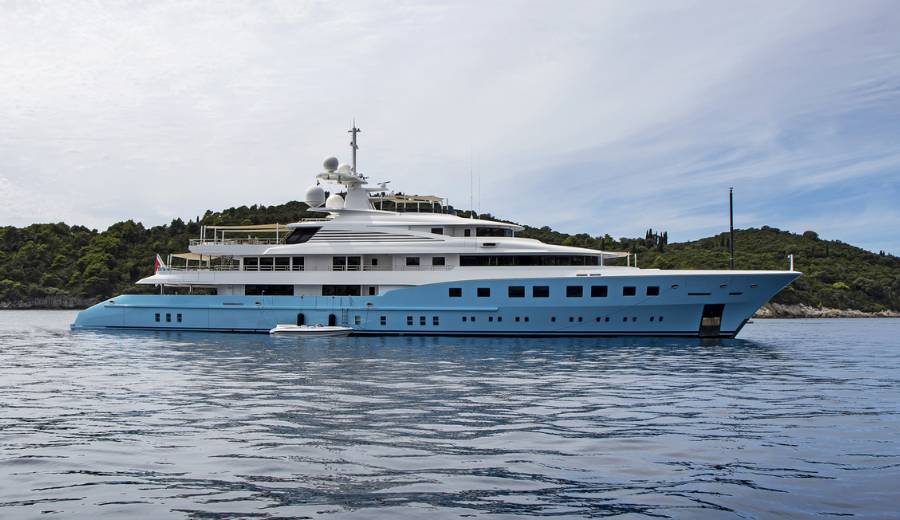
❑ Initial Costs and Maintenance
🚢 Private Yachts: The very act of purchasing a private yacht is a significant financial commitment. Beyond the purchase price, one has to consider annual maintenance, which often runs between 10% to 20% of the initial cost, docking fees, insurance, and crew salaries. It's not just buying a vessel; it's entering into a lifelong relationship.
🛥️ Charter Yachts: While chartering a yacht also demands a hefty sum, especially for the high-end vessels, it's a one-time expenditure without the long-term financial commitments. You get to experience luxury without the baggage of upkeep.
❑ Returns on Investment
🚢 Private Yachts: Some private yacht owners mitigate their maintenance costs by offering their vessels for charter when they're not using them. This can provide a steady stream of income, but it also means opening up one's personal space to outsiders.
🛥️ Charter Yachts: These are primarily business investments. Owners purchase these with the express intent of renting them out, often aiming for high occupancy rates to maximize returns.
Customization versus Versatility
🚢 Private Yachts: The beauty of a private yacht lies in its reflection of the owner's personality. From the color palette, interior design, and even the name, every aspect can be personalized. The yacht becomes a floating piece of art, a personal sanctuary on the waves.
🛥️ Charter Yachts: While they are opulent and luxurious, they often have a more neutral design to cater to the tastes of a broader range of people. Their versatility is their strength, aiming to please many rather than deeply resonate with one.
The Crew: Guardians of the Voyage
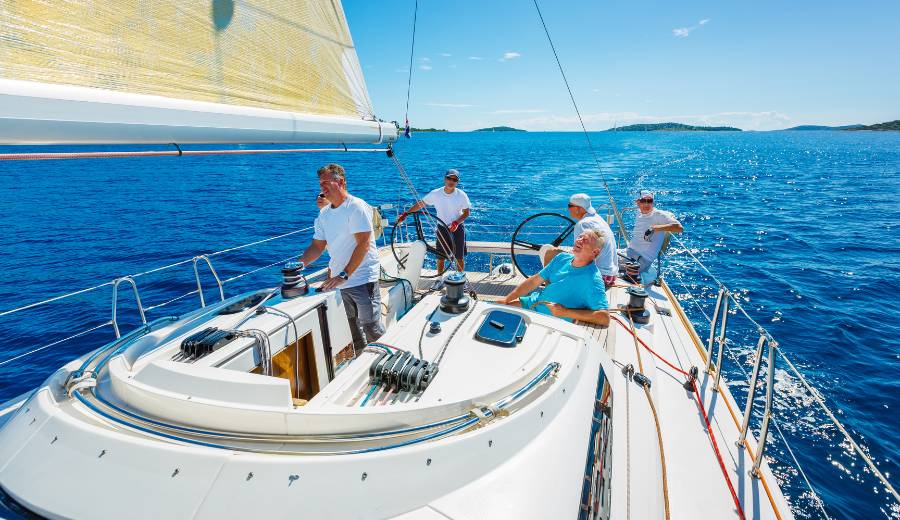
🚢 Private Yachts: Crews on private yachts often develop a deep bond with the owners. They understand the owner's preferences, habits, and desires. It's a dance of familiarity, where words are often unnecessary.
🛥️ Charter Yachts: The crew is well-trained to adapt quickly to the needs and wants of different guests. They master the art of impeccable service without the advantage of longstanding familiarity. Each trip is a new adventure, a fresh set of faces, and unique demands.
The Ecological Footprint: Treading Lightly
Both private and charter yachts have an ecological impact, from fuel consumption to waste management. However, there's a rising trend in the yachting world to adopt eco-friendly technologies and practices.
🚢 Private Yachts: Owners with a deep passion for the ocean often lead the way in adopting sustainable technologies, from hybrid engines to solar panels.
🛥️ Charter Yachts: Given they are often part of a larger business model, there's an emphasis on efficiency. Green charters are becoming increasingly popular, appealing to environmentally-conscious clientele.
Concluding the Voyage
The realms of private and charter yachts are but two spectacles in the grand theater of maritime luxury. Each offers a distinct journey, a unique story, and a personal relationship with the boundless ocean. Whichever path one chooses, the sea, with its eternal embrace, awaits with open arms.
Frequently Asked Questions
In our ceaseless journey through the maritime tapestry, we often find ourselves faced with questions - those curiosities and wonders that arise when contemplating the world of yachts. We have curated some of the most frequently pondered inquiries to further illuminate the intricate dance between private and charter yachts.
Why do people often opt for chartering instead of buying?
Chartering allows individuals to experience the luxury of yachting without the ongoing commitment of ownership. It's akin to wandering through various terrains on our planet, sampling each without settling in one. By chartering, one can traverse different waters, aboard varying vessels, without being tethered to the responsibilities of upkeep.
How does one ensure the crew's competence on a charter yacht?
The crews aboard charter yachts are often meticulously trained to cater to a broad spectrum of guests. They are seasoned sailors, well-versed in both the art of navigation and hospitality. We would always recommend seeking yachts managed by reputable charter companies, ensuring a crew that meets the highest standards of professionalism.
Are there destinations that are exclusive to either private or charter yachts?
While the vast oceans and ports are open to all, some exclusive marinas and docking spots might prioritize private yachts, given the long-standing relationships with owners. However, charter yachts, due to their often-broader network, might have access to a range of curated destinations, opening doors to unique experiences.
Can a private yacht be transformed into a charter yacht?
Absolutely. Many private yacht owners choose to offer their vessels for charter to mitigate maintenance costs and ensure the yacht isn't lying dormant. This transition requires adherence to certain regulations and standards, ensuring the vessel is fit for guests beyond the owner's circle.
What ecological measures are being adopted in the yachting world?
We are increasingly witnessing a conscious shift towards sustainable yachting. From hybrid propulsion systems to waste management protocols, both private and charter yachts are embracing practices to reduce their footprint. After all, our love affair with the sea comes with the responsibility to protect its vast wonders.
Is the experience onboard a private yacht vastly different from that on a charter yacht?
While the core essence of luxury, serenity, and connection with the ocean remains consistent, the nuances do vary. Aboard a private yacht, every corner whispers tales of its owner’s personality and desires. A charter yacht, conversely, offers a more versatile, yet equally opulent experience, designed to cater to a myriad of guests.
In our exploration of the yachting world, it is these questions that guide us, enlightening our understanding and deepening our appreciation for this magnificent dance with the sea. We hope this curation assists you in navigating the enchanting waters of yachting decisions.
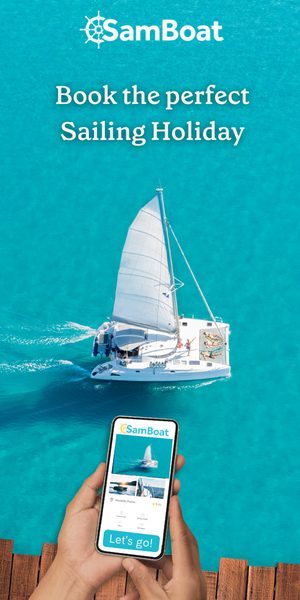
How to Charter a Private Yacht
:max_bytes(150000):strip_icc():format(webp)/Becker1-5b734a56c9e77c0025caddbd.jpg)
Pete Atkinson /Getty
The idea of chartering a private yacht to explore a tropical island or coastal destination sounds like a dream trip for many seasoned travelers. After all, those swanky vessels often include a wide array of amenities that make life at sea not only comfortable, but downright luxurious. In the past, such an experience was usually reserved for the extremely wealthy, but today that isn't necessarily the case. In fact, thanks to increasing demand, improved technology, a greater availability of ships, and a number of other factors, this style of travel is more within reach than it has ever been in the past.
If you've been considering chartering a yacht for your next vacation, but aren't sure how to proceed, we're here to help. This is our handy guide for how to make that happen, opening the doors to an entirely new way to see the world. Be warned: Once you've enjoyed life aboard a private yacht, it can be challenging to go back to other modes of travel.
What is a Yacht?
Before diving too deeply into the logistics of chartering your own ship, it is important to first start with defining exactly what a yacht is. The simplest definition is that a yacht is a ship that is designed for prolonged journeys by sea. These types of vessels are typically used for pleasure cruises, but some are also meant for racing. A yacht can range in size from small enough to accommodate just a few people to sprawling ships that can hold dozens, with larger versions typically requiring a full crew. Propelled by sail or motor, yachts can be found in just about every major body of water in the world.
What Does it Mean to Charter a Yacht?
Put simply, chartering a yacht means that you are essentially renting a ship for your own personal use for a designated time. Unlike going on a cruise, you'll have the ship completely to yourself and whomever you invite. You'll also be able to create your own itinerary, deciding where you go, how long you want to stay, and what kind of activities you want to do along the way. Chartering your own boat provides a sense of freedom that you don't get even with a small-ship cruise .
Getting Started: Choosing Your Destination
One of the first—and most important—decisions that you'll have to make when it comes to chartering a yacht is where to you want to go. Traditionally speaking, the two most popular locations for booking a private ship have been in the Mediterranean and the Caribbean, although these days you can find options for chartered yachts in just about every corner of the globe, including the South Pacific, Australia , Central and South America , and even the Arctic and Antarctic.
Where you decide to go on your aquatic adventure may also dictate when you'll go. For instance, many chartered yachts spend the summer months in the Mediterranean, then cross the Atlantic to the Caribbean for the winter. If you want to book a charter in either of those locations, you'll more likely to do so at those times of the year. Similarly, if the Arctic or Antarctic is on your agenda, you'll need to plan on a summer sailing excursion in the Northern or Southern Hemisphere respectively. While some destinations have yachts available all year round, the supply of ships may ebb and flow based on demand and affect pricing. Keep that in mind as you start to plan your trip.
Choosing a Type of Yacht
It is important to think of your yacht as your traveling hotel for the length of your journey. You want it to be comfortable, relaxing, and provide the experience you crave, while also keeping it within your budget.
After deciding on your destination, you'll want to consider the type of yacht that you want to travel aboard. There are many different styles of ships to choose from and the one you select will likely have an impact on your trip. For example, a sailing ship will offer a very different type of voyage from one that is propelled by an engine. Traveling under sail may be a bit slower, but is also less prone to mechanical failure. It may also allow travelers to visit certain locations where fossil fuel-burning vessels simply aren't allowed.
Similarly, the size of the yacht will be an important factor. If you're looking for a romantic, intimate journey for two, a smaller ship designed with heightened privacy may be more to your liking. On the other hand, if you're traveling with a larger group, you'll definitely need a ship that can comfortably accommodate everyone, with a little room to spare. Days at sea can lead to cramped quarters from time to time.
Planning Your Voyage
The versatility and freedom that comes with yachting is part of its appeal, and plans can be changed based on how the trip unfolds. But having at least a rough outline of what you would like to do on your vacation will not only lead to a more efficient use of your time, it will also help deliver the experience you're hoping to get.
If your goal is to simply relax aboard the ship and sail through a scenic destination, you can do just that without creating a complicated itinerary. On the other hand, if your trip includes regular shore excursions for sightseeing, shopping, and dining, more thought will have to be put into the schedule. If you'd also like to go diving and snorkeling , fishing , or whale watching , you'll have to discuss that with your captain and crew.
Should I Use a Charter Broker or Go it Alone?
Once you know where you want to travel and have a sense of the type of trip you want out on the water, it's time to actually reserve your yacht. There are a number of ways that you can do that these days, including using a charter broker or booking the ship directly yourself. Both options have their advantages and disadvantages, although often times it comes down to your budget.
By hiring a charter broker, you may end up spending a little more money, but you're also more likely to get a yacht, crew, and itinerary that matches exactly what you have envisioned for your vacation. Good brokers such as Worth Avenue Yachts , Frasier Yachts , and Ocean Getaways can make the entire experience a simple and straightforward affair, working with you to match you with the right ship and advise on where to go and what to do on your trip. It is also important to keep in mind that many yachts can only be chartered through a broker, which brings a level of safety and security to the process.
On the other hand, it is possible for travelers to book their own yachts directly, cutting out the middleman and potentially saving some money in the process. Using a website such as Ahoy Club or Yotha , you can search through available ships based on the destination and planned travel dates. However, this approach does tend to require more time and planning on the part of the traveler since you'll be handling some of the duties that would normally be taken on by a charter broker.
It is also possible to deal directly with a ship's owner or captain to charter a boat without using a broker or website. We would recommend using extreme caution with this approach as it could potentially leave you more exposed to being taken advantage of through unexpected additional expenses or outright fraud. Unless you have a good, solid connection with the yacht owner, we recommend sticking to more established and reliable chartering services.
Do I Need a Crew?
The size of the crew will often cause the price of a charter to go up dramatically. Some ships will not only include a captain and first mate to pilot the vessel, but a chef, personal wait staff, excursion guides, and others. Obviously, smaller ships will have fewer staff, which can affect—both positively and negatively—your experience.
It is possible to have just a captain onboard to navigate the vessel. In those circumstances, you'll become part of the crew, helping to prepare meals, assisting in sailing the vessel, and so on. This approach can save some money, but may not be the type of vacation you're looking for.
Of course, if you already know how to sail, feel comfortable handling the ship, and have the necessary boat licenses, you can also operate a boat yourself.
How Much Does Chartering a Yacht Cost?
When it comes to chartering a yacht, without a doubt the most common question is "how much does it cost?" Unfortunately, there is no easy answer to that, as there are a lot of variables that go into determining price. The most important of those variables is the size of the ship and the destination you'll be visiting. A small sailing ship chartered in the offseason in the Caribbean, for example, will cost much less than a large luxury yacht would at the height of the summer in the Mediterranean. The length of the voyage, size of the crew, number of ports of call, and the types of activities done en route will all figure into the price of a chartered yacht vacation.
That said, Ocean Getaways—one of the charter brokers listed above— indicates that on the low end, a chartered luxury catamaran in the British Virgin Islands starts at about $2,500 per person for a full week. This price includes all meals and an open bar, making it a reasonably-priced vacation for many people. The expenses can spiral upwards quickly from there, with motorized yachts climbing to $4,000 per person thanks to added fuel costs. If you jump into the "superyacht" category, the price can balloon to $50,000 a person for one week.
Many of the charters are all-inclusive, but it is important to read the fine-print on your contract to be sure. Some yachts will have added expenses; not all activities may be covered and you'll want to factor in a tip for the crew. Typically, tips are about 20 percent of the total cost of the charter.
What to Bring Onboard
As with any vacation, what you bring on your chartered yacht will largely be determined by the destination you're visiting. If you're going to a tropical locale and you like to travel light, you might not need much more than a swimsuit, T-shirt, sun hat, and a pair of flip-flops. However, if you're making a more adventurous journey into the Antarctic, you'll definitely want to bring a few more layers. When packing, simply bring clothing that is appropriate to the setting.
Once you're aboard your ship and settled into your cabin, you won't have to worry about repacking suitcases or lugging them from one hotel to the next. Unless your yacht specifically mentions keeping your luggage to a minimum, you'll have the freedom to pack a few extra items that you may have left at home in order to save space or weight. Provided you have room in your suitcase, why not bring an extra outfit or two? You'll likely appreciate the versatility that this style of travel affords.
Most modern yachts are nicely equipped with entertainment systems for watching television shows and movies. Some have well-stocked book shelves or even full libraries. You'll also find plenty of places to plug in electronic devices for recharging and you may even get wireless internet. While it is always nice to unplug while away from home, having things to distract and keep you entertained while at sea for hours at a time can come in handy.
Best Luxury Cruise Lines for Honeymoon and Romantic Cruises
13 New Ocean Cruise Ships in 2018
The 11 Best Places to Buy Luggage of 2024
Historic Ships in Baltimore's Inner Harbor
The 10 Best Places to Buy Bikes of 2024
Tips for Cruising on a Cargo Ship
How to Charter a Yacht for the Ultimate Caribbean Boating Adventure
Why Cruising Solo Is Worth it
How to Charter a Private Jet
The Different Types of Adventure Travel
7 Reasons Why You Should Consider a Small-Ship Cruise
St. Bart’s Guide: Planning Your Trip
The Best Alaska Cruises
Planning an All-Inclusive Caribbean Vacation for Singles and Solo Travelers
14 Amazing Private Travel Experiences
How to Plan a Caribbean Vacation

- Subscribe Now
- Digital Editions

Yacht definitions: What is a yacht? And does it need to have sails?
- Top stories
By far the most common question we get asked here at Motor Boat & Yachting is ‘how can you call that a yacht if it doesn’t have sails?’ Here we explain why a boat doesn’t need sails to be called a yacht...
What’s in a name? Quite a lot if you’re a yacht! Not only are the names of yachts a source of endless amusement, but by defining your boat as a yacht in the first place, you’re setting up certain expectations.
Yacht definitions: A brief history
Whilst boating for fun dates back to Ancient Egypt and possibly even further than that, the word yacht comes from the Dutch ‘jachtschip’, which means hunting ship. Jachts were originally a class of sailboat used in the 16th century to hunt down enemies of the Dutch Republic.
However by the 19th century the term ‘yachting’ had developed to mean recreational boating in general, and with the advent of steam boats, sails were no longer the only method of propulsion available to Victorian yachtsmen.
Article continues below…
World’s largest superyacht: Everything you need to know about 183m REV
Hemingway’s boat reborn: how pilar was recreated in meticulous detail, recommended videos for you.
In the early 20th century (1904 to be precise), our humble magazine was launched under its original title The Motor Boat , but by the 1950s the ‘& Yachting’ suffix had been added to refer to the general pastime enjoyed by motorboat owners. We even reviewed the occasional motorsailer for those who liked to enjoy the benefits of both power and sail.
Today’s Motor Boat & Yachting is dedicated purely to powered leisure vessels from 25-125ft with the occasional foray above and below that when interest dictates. Current editor Hugo Andreae insists that he is ‘terminology agnostic’ saying, “I’m not bothered whether people refer to their boats as yachts, cruisers, power boats or gin palaces just so long as they enjoy using them. But for the record my 22ft Karnic is definitely a gigayacht!”

Editor Hugo’s Karnic 2250 is his family’s pride and joy, but should it be called a yacht?
What makes a yacht, a yacht?
Some would argue that a yacht has to have sails, and as we’ve seen, that was originally the case, but we here at Motor Boat & Yachting beg to differ, as its common to refer to large motorboats as motoryachts, superyachts or even megayachts without any expectation that they would have sails.
Others assert that a yacht should have to have a cabin in order for it to be fully considered a yacht, or that it has to measure at least 10m in length. If that’s the case then some longer narrowboats could be technically considered as yachts, although you’d be hard pushed to find anyone who agrees with that definition.
The final test for something to be considered a yacht is harder to pin down, but it is generally accepted that all yachts have to have a certain aesthetic or architectural appeal in order to earn this haughty moniker.

The advent of internal combustion in the 19th Century allowed motor yachts, like this fine example from Camper & Nicholsons, to be launched. Photo: Getty Images
Whether a boat is worthy of being called a yacht is clearly subjective, but there’s one thing we won’t budge over – it certainly doesn’t have to have sails!
If it’s sailing yachts specifically that you’re interested in, you won’t find many of them here, but we can heartily recommend our sister titles Yachting Monthly and Yachting World , who know much more about them than we do.
Bigger yacht definitions: Superyacht, megayacht or gigayacht?
Beyond the simple term yacht, there are a few other yacht definitions worth clarifying. The most commonly used of which is superyacht .
The debate still rages over what constitutes a superyacht. Any pleasure yacht with a load line length of 24m or more (not length overall or waterline length as is often misquoted) and a gross tonnage of 80GT is classified as a Large Yacht under MCA coding rules, causing a number of additional regulations to kick in, most crucially the requirement for the skipper to hold a commercially endorsed Yachtmaster Offshore Certificate. This is the closest thing to a technical definition of a superyacht.
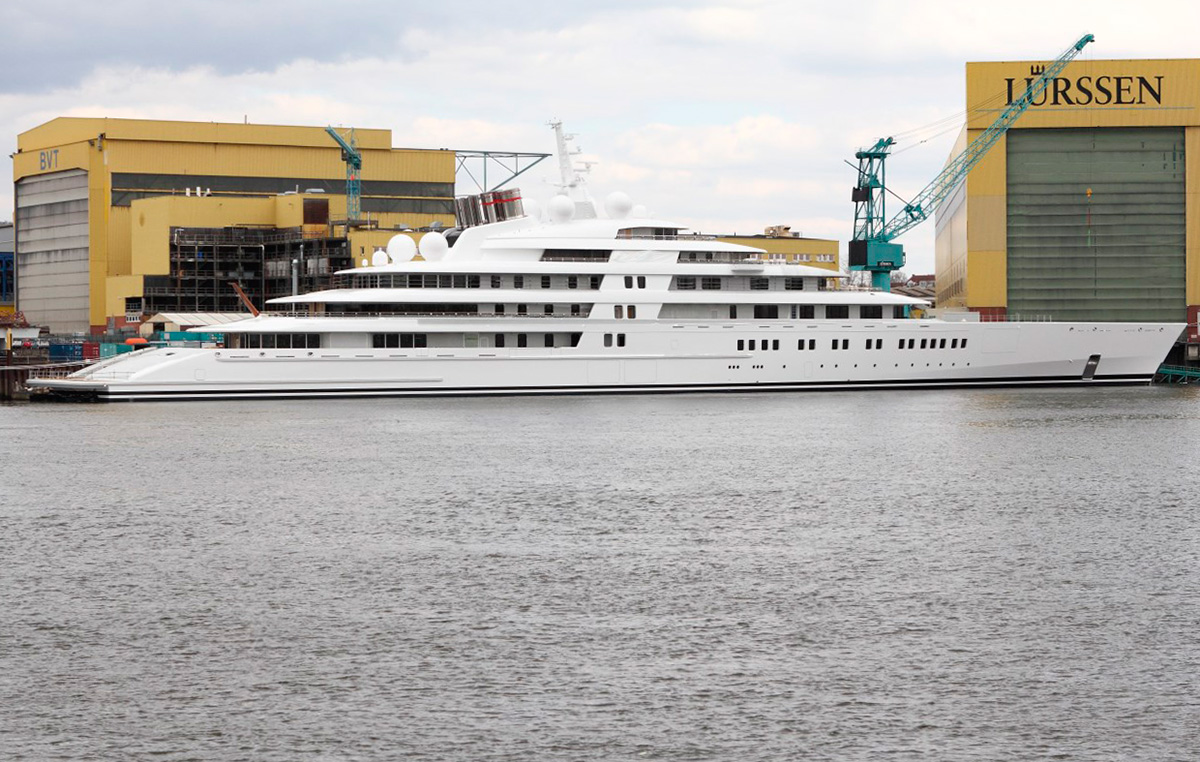
At 180m Azzam is currently the largest yacht in the world, but an 183m gigayacht called REV is currently under construction in Norway. Photo: Wikimedia Commons
However, while this used to mean most leisure boats with an overall length (LOA) of 80ft or more fell into the Large Yacht category, yards have become so adept at designing bigger boats with a load line length of just under 24m that many craft with an LOA of 90ft or more still count as regular pleasure vessels.
For that reason some people prefer to use the simpler definition of a superyacht being any privately owned vessel with an LOA of 100ft or more. Even then some would argue that a true superyacht should be a custom built yacht of at least 35m or 120ft.
Such is the inflationary pressure on yacht sizes and terminology that the term superyacht itself has begun to lose currency among the yachting elite. Owners of craft over 50m now use the term megayacht to categorise their larger vessels, while the lesser-spotted gigayacht is reserved for yachts over 100m.
Fewer than 100 gigayachts have been built to date, making this the rarest of rare breeds. That said with the world’s largest yacht now measuring over 183m, it’s surely only a matter of time before the 200m mark will be broken and yet another term will be needed. Got any suggestions? Drop us an e-mail: [email protected]
World’s Coolest Boats: XSMG XSR 48 – The ultimate diesel superboat
4 of the best motor boats under £50k to buy right now, can this motoryacht prove methanol is the fuel of the future we’ve been waiting for, latest videos, bluegame bgm75 sea trial: the €6.8m powercat that thinks its a monohull, cormate chase 32 tour: fast, stylish and practical weekender, axopar 29 sea trial: sun top vs cross cabin – which is best, sunseeker ocean 182 – see how this compact superyacht copes in a wet and windy sea trial.
ZuBlu Tips & Articles
What is a charter yacht.
May 6, 2024
Have you ever dreamt of setting sail aboard a private yacht, joined by just your closest friends and family? Well, with exclusive charter yachts operating in some of the most sought after travel destinations around the world, this could be the year your dream comes true.
You don’t even have to own a boat ...or know how to sail for that matter.
Read on to learn about the different types of charter yachts available, how they differ from traditional liveaboards and resorts, and the benefits of booking your very own private charter.
Need help planning your holiday on board your private charter yacht?
Contact one of our award winning travel experts today

What does it mean to charter a boat?
Private charter yachts are those that allow guests to hire the entire boat – essentially it's a yacht rental. This means the biggest difference between charter yachts and normal liveaboards, is that you’ll have the whole boat to yourself. Of course, each charter vessel will have its own rental agreement to specify the finer details of your booking, such as inclusion and exclusions, the number of guests allowed, activities offered, and the itinerary undertaken. You can even choose to charter a vessel with or without a crew, this is typically referred to as either crewed or bareboat .
Despite the differences in rental terms, and the huge potential for personalisation, most charter voyages still share a few common attributes. Firstly, these vessels often explore remote regions that aren’t easily visited by day trippers, allowing guests to cover more highlights in a single trip and offering access to some of the planet’s most pristine environments. What's more, charters typically roll the basic package into one set rate, while also offering a range of optional extras which can be added at an additional cost . But best of all, they give you the freedom to customise almost everything – from the voyage’s guest list and itinerary to daily menus, additional activities, and more!
Charter yachts vs open cabin, what’s the difference?
Normal liveaboard dive boats use an open cabin system for booking. The vessel has a fixed schedule and its staterooms are filled on a first come, first served basis, much like a hotel or resort. Some boats also offer shared cabins as an affordable option for solo travellers, or as a way for guests to meet a new dive buddy or two.
A charter yacht, by contrast, means you reserve an entire boat for your exclusive use, only inviting people that you want to share your journey with. Most charter agreements include a maximum number of guests, and it’s up to you to fill the cabins with as many – or as few – people as you prefer.
Some boats also offer partial charters, allowing you to reserve a number of cabins for your travel group at a discounted rate. These trips don’t offer the same level of privacy and exclusivity as a full charter, but they do include certain benefits, such as selecting cabins and activities just for you and your companions.
Most common types of charter vessel
One of the biggest distinctions when it comes to booking a private charter is the type of vessel you’ll be cruising on. Sailboats, motor yachts, catamarans, and traditionally-built solid wood ships are all available for rent – each offering its own unique perks and drawbacks.
Sailing vs motor yachts
Sailing yachts cruise silently, propelled primarily by wind power, creating a charming atmosphere for your charter voyage. They are also more environmentally sustainable than motor or power yachts, because they use far less fossil fuel. That said, they are also much slower, making them less practical for covering great distances.
Motor yachts often use powered stabilisation systems to deliver a smoother ride. These fins and flywheels kick on when the yacht rolls from side to side, helping to keep its decks level in the water. Sailboats, however, use internal water tanks to balance their weight and reduce roll. These do offer a somewhat smoother ride, but cannot compete with the technology used in motor-powered boats.
Another key difference between sailing vessels and power boats is aesthetics. Sailboats offer a more traditional look, with masts rising from the deck and rich hardwood construction – making them ideal for romantic escapes and cultural immersion. Modern motor yachts, on the other hand, are typically made from metal and have no need for masts and sails, providing contemporary style and convenience.
Monohulls vs catamarans
Monohull or single-hulled vessels are built with one large interior space, whereas catamarans are built over two separate hulls. And, a third, far less common type of boat – the trimaran, uses three individual hulls. Monohull vessels sometimes feel less stable in the water, as their shape allows them to roll back and forth more than a catamaran or trimaran. But, their layout is more practical and straight-forward, as the entire interior is connected. Catamarans are also less exhilarating to sail, as they are far less manoeuvrable.
Traditional phinisis
These traditional two-mast sailing vessels are constructed by the Bugis people of Indonesia’s South Sulawesi, offering a local take on the European gaff or schooner. The same families have been building these boats for centuries, using techniques passed down from their ancestors to produce some of the planet’s finest sailing vessels. Phinisis use a distinctive rigging system with seven to eight individual sails for power and propulsion, and are hand-built from teak, ironwood, and other exotic timber found in Southeast Asia. Almost all charter yachts operating in Indonesia are built around a traditional phinisi design.
Other traditional single hulled sailboats used as charter yachts around the world include Turkish gulets, Arabian dhows, Maldivian dhonis, and ketches.
Benefits of yacht charters compared to resorts and liveaboards
A charter boat’s biggest attraction is its exclusivity. Unlike a standard liveaboard or resort, you won’t have to share the adventure with other groups or travellers, so every memory made is extra special. Of course, it’s also up to you how many guests are invited, allowing you to create the exact atmosphere you desire.
Charters often cater to a high-end clientele, offering services that might not be found elsewhere . As well as an atmosphere of exclusivity, such charter yachts might offer private adventures in far-flung regions, well off the typical travel radar, and highly personalised service with a high crew to guest ratio. The crew will be happy to honour your every request, as you’ll have the entire boat all to yourself. You’ll get to tailor every element of your experience – from what you eat to which sports you participate in and where you visit. Outings on private islands, state of the art watersports equipment, luxurious spa services, and romantic private dining, are just a few indulgent activities that may be available.
Lastly, for divers that need a bit of extra attention in the water, chartering a private yacht can be a great option. You won’t have to worry about holding other dive groups back or being pushed outside the limits of your skill and comfort level. You’ll be guaranteed as much hands-on guidance and assistance as you want underwater, and will feel free to move at your own pace. Some vessels will even offer the chance to add dive training and courses to your itinerary, with the sole focus on you and your travel companions.
Now you know what a charter yacht is, you probably can't wait to experience one for yourself. But before you do, be sure to check out our in depth advice on how to charter a private yacht .
Ready to start planning your private charter yacht?
You may also be interested by.
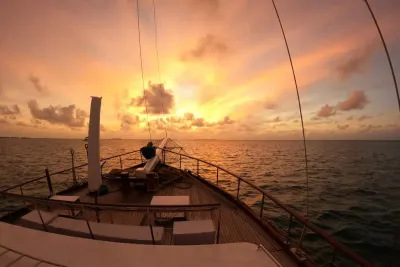
Top luxury charter yachts and itineraries in the Maldives
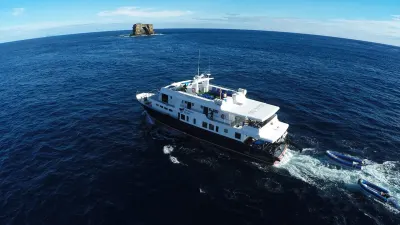
The top rated Galapagos liveaboards for scuba divers

Private dive getaways you don’t want to miss

Who should join a liveaboard trip?
A Beginner’s Guide to Chartering a Yacht

With the pandemic driving a boom in superyacht charters , more and more people are taking to the water for their first yachting experience. But while some superyachts can cost more than a million a week to charter, you don’t need to outlay seven figures for your own yachting vacation.
Wondering what else you need to know before stepping on board for the very first time? We’ve turned to experts in the yachting industry for their insider intel on how to charter a yacht like a pro—from how much it will run you, to where to go, and well beyond. Read on.
Do I need a charter broker, and how do I find one?
It’s a charter broker’s job to match you with the right yacht and crew—and then take the lead in planning the entire experience. Professional bodies such as MYBA The Worldwide Yachting Association act as a database of industry-recognized professionals. But the best source for finding a charter broker is often your own network. “Building up a relationship with a charter broker is very important,” says Jacqui Lockhart, a Monaco-based broker at Camper & Nicholsons International . “If possible, look for a recommendation from a friend.”
Once you’ve found the right broker, communication with them will be key. “Take the time to be as detailed with your preferences, such as dietary requirements, likes and dislikes, and preferred activities, as possible,” says London-based broker Charles Crane of Edmiston . “This will give us and the crew the best information to make the charter a success and tailored to perfection.”
How much should I be prepared to spend?
“The entry point is around $40,000 for a week on a yacht 82-feet upwards that can sleep six people," says Lockhart. What can take first time charterers by surprise is that this isn’t an all-inclusive figure. “The charter fee covers the hire, the crew, the insurance—everything that’s linked to the yacht,” Lockhart continues. Anything specifically for the client is extra—including food and beverages, fuel, and dockage. As a rule of thumb, budget for an extra 30 percent on top of the baseline charter figure for these extras, which goes into a fund known as the Advanced Provisioning Allowance (APA). At the end of the charter, it is also customary to tip the crew; between 10 and 20 percent of the charter fee is a guideline figure. There may also be Value Added Tax (VAT) to pay on the charter rate, depending on the country of embarkation.
At the smaller end of the charter fleet, more opportunity exists for single-cabin bookings rather than whole yacht charters. This year in the Caribbean , Sheila Ruffin of Soca Yacht Charters has launched a “Stranger on the Seas” package. Prices start at around $6,000 per person—all-inclusive—on catamarans between 48 and 60 feet. “This allows couples the opportunity to mix and mingle with other couples for an adventurous and social yacht charter on the Caribbean Sea,” says Ruffin.
What destinations are best suited to first-time charterers?
“For first-timers, I wouldn’t recommend a remote destination,” says Captain Kelly Gordon of Freddy , a 106-foot charter yacht based out of the Bahamas . “When it’s hard to get to, that eats up some of your valuable time and can also take some of the fun out of it.”
While yachts are heading towards unchartered waters such as Antarctica with increasing frequency, cruising grounds in the Mediterranean and the Caribbean are classic destinations for a reason. “For the first-time charterer in these locations, there will be more yacht options to choose from, proven cruising grounds with known and safe anchorages, well-connected and easy access hubs to ensure smooth passage to embark and disembark the vessel as well as the ability to source most provisions that guests may want,” says Crane.
The key ingredient? The crew.
Although much of the focus is on securing the right yacht, the secret to the success of a charter is its crew. “Put simply, the crew make the difference between a good charter yacht and a bad one,” says Crane. Today’s crew are increasingly versatile. “They may also be a diving or yoga instructor, personal trainer, fisherman, or sommelier,” he continues.
The crew also knows your cruising area better than anyone else. “Be sure to pick their brain on fun things to do. They often love the opportunity to come up with fun activities and games, whether for kids or adults,” says Lotte Barker-Hahlo, a London-based charter broker at Burgess .
The level of hospitality from crew on most yachts often convert first-time charters into repeat customers. “The attention to detail from the crew is unsurpassed by any other luxury holiday,” says Barker-Hahlo. “From the unpacking of your suitcase to being offered a drink before you’ve even realized you’re thirsty, it’s 24-hour care and service.”
Gordon says that much of the feedback she receives at the end of a first-time charter is why didn’t we do this earlier? “People are always surprised at how we take the time to get to know their needs before they have even arrived. We really do study those preference sheets!”
Think carefully about who else you want on board
Another important factor to a successful yacht vacation? Your fellow travelers. This is a specific type of vacation, which should narrow your list of invitees. “Strongly consider who you vacation with when chartering a yacht,” urges Ruffin. “Unlike other vacation options, yachts are very intimate and exclusive. Choose to share your water adventure with those you like and will enjoy on the water for a week or more.” Maybe, even for veteran yachties, that's the sagest advice of all.


Class Notations on Yachts – Classification Guide
9 December 2016
INTRODUCTION TO YACHTS CLASSES
Classification.
Rules are developed to establish standards for the structural strength of the large yacht’s hull and its appendages, and the suitability of the propulsion and steering systems, power generation and those other features and auxiliary systems which have been built into the ship to assist in its operation, and even pollution protection systems. A yacht may be maintained in class provided that, in the opinion of the Society concerned, it remains in compliance with the relevant Rules, as ascertained by a periodic or non-periodic survey(s). Today a vessel either meets the relevant Class Society’s Rules or it does not. As a consequence, it is either “in” or “out” of “Class”.
In summary, Class Notations on Yachts will tell you a lot about the building quality and condition of each vessel and its components on an annual basis, according to the excellence of its construction and its adjudged continuing soundness. A yacht that has been designed and built to the appropriate Rules of a Society may apply for a Certificate of Class from that Society or for a periodical survey (generally required every 5 years) meant for the Renewal of Class Certificate . Class Societies have often developed two separate sets of Rules for Commercial and Private Yachts . They can be applied to New Construction as well as Existing Yachts .
Classification Societies
Classification Societies play a fundamental role in today’s marine industry. A Society will act on behalf of ship-owners and builders to ensure high build quality and the safety of a ship’s main structural parts . Classification also provides a point of reference with regard to those who were involved in the supply chain including builders, charterers and insurers.
As an independent, self-regulating, externally audited, body, a Classification Society has no commercial interests related to ship design, shipbuilding, ship ownership, ship operation, ship management, ship maintenance or repairs, insurance, or chartering.
The process begins with the design and construction phases, focussing on the implementation and manufacture of key components as well as technical specifications. The standards which must be adhered to are dictated by the regulations of the chosen society and are published as rules, evolving continuously to incorporate new technologies and client requests via the advice of highly competent engineers and architects.
All Classification Societies waive liability for future faults as a surveyor can only record a vessel’s quality at the time of inspection; it is then the responsibility of the yacht owner to maintain the vessel and inform the society in the event of damage or structural alteration. Although the surveys are thorough, they do not cover all aspects of a ship’s build and operating service. This can include crew qualifications, navigational aids and manoeuvrability.
Classification Societies are often simply referred to as “Class Societies” or just “Class”. There are currently 13 members of the International Association of Classification Societies (IACS) , each with a unique set of rules, classification layouts and notations. Five of the biggest Classification Societies are listed below, along with their identifying signature, to denote a ship constructed under special survey in compliance with the Society’s rules, suitable for unrestricted sea-going service:
The marks following the Society’s standard signature are not interchangeable between organizations, meaning each letter or number will represent a different characteristic for each society. Each mark can be broken down to highlight a yacht’s capabilities, equipment or restrictions.
Each of the Classification Societies has developed a series of notations that may be granted to a vessel to indicate that it is in compliance with some additional voluntary criteria that may be either specific to that vessel type or that are in excess of the standard classification requirements.
The Classification of a yacht does not absolve the Interested Party from compliance with any requirements issued by Administrations and any other applicable international and national regulations for the safety of life at sea and protection of the marine environment such as SOLAS, ILLC, MARPOL, ILO or IMO.
Smaller vessels are categorized differently, adhering to different requirements and statutory regulations. With a heavier focus on passenger numbers and distance of operation from shore, the Maritime and Coastguard Agency (MCA) outlines guidance for UK vessels (up to 24 meters in length) which are used for charter or commercial use.
As RINA is today the most reputed Classification Society in the Mediterranean and a leader in the yachting certification business, developing and offering services of ships classification, certification, verification of conformity, inspection, and testing, we will hereby provide you with a summary of their more common Class Notations on Yachts , this will be helpful to identify these most peculiar symbols :
CLASS NOTATIONS – RINA
Main class symbol.
The main class symbol C is assigned to ships built in accordance with the requirements of the Rules or other rules recognized as equivalent and maintained in a condition considered satisfactory by the Society. The period of class (or interval between class renewal surveys) assigned to a ship is a maximum of 5 years.
Except for special cases, a class is assigned to a ship only when the hull, propulsion and auxiliary machinery installations, and equipment providing essential services have all been reviewed in relation to the requirements of RINA’s Rules.
With the 5 year class period is to be understood as being the highest class granted by the Society.
Construction Marks
The construction mark identifies the procedure under which the yacht and its main equipment or arrangements have been surveyed for the initial assignment of the Class.
Construction marks defined below are assigned separately to the hull of the yacht and its appendages, to the machinery installation.
The construction mark is placed before the symbol HULL for the hull, before the symbol MACH for the machinery installations, and before the additional Class Notation granted, when such a notation is eligible for a construction mark.
When the same construction mark is assigned to both hull and machinery, the construction mark is assigned globally to the ship without indication HULL and MACH after the main class symbol.
Hull Construction Mark (HULL)
- Construction mark ✠ is assigned to the hull when it has been surveyed by RINA during its construction in compliance with the new building procedure.
- Construction mark ✠ is assigned to the hull when it was built under the survey of another Society.
- Construction mark ● is assigned to the hull in all cases other than those listed above.
Machinery Construction Mark (MACH)
- The construction mark ✠ is assigned when the propelling and auxiliary machinery has been designed, constructed, certified, installed and tested in accordance with RINA Rules.
- The construction mark ✠ is assigned when the propelling and auxiliary machinery has been designed, constructed and certified in accordance with the rules of another society and installed and tested under the survey of RINA.
- Construction mark ● is assigned in all cases other than those listed above.
Navigation and Operating Notations
The navigation notation UNRESTRICTED NAVIGATION is assigned to a ship intended to operate in any area and any period of the year.
Restricted operating area notations are optional and will be marked accordingly like, for example, on a specified operating area or operation service within “x” miles from shore.
Additional Class Notations
An additional Class Notation expresses the classification of additional equipment or specific arrangement, which has been requested by the Interested Party. The assignment of such an additional Class Notation is subject to the compliance with additional rule requirements.
Some additional Class Notations, due to the importance of relevant equipment or arrangements, are assigned a construction mark. This is indicated in the definition of the relevant additional Class Notations. Class Notations which may be assigned to a ship are listed according to the category to which they belong:

Automated Machinery Systems (AUT)
AUT notations are relevant to automated machinery systems installed onboard ships.
Automated machinery systems (AUT – UMS (Y))
The additional Class Notation AUT-UMS (Y) may be assigned to yachts that are fitted with automated installations enabling machinery spaces to remain periodically unattended in all sailing conditions including manoeuvring.
Integrated Ship Systems (SYS)
SYS notations are relevant to the operation of integrated systems regarding navigation, machinery, communication and specific cargo, as applicable.
Centralised Navigation Equipment (SYS-NEQ)
The additional Class Notation SYS-NEQ is assigned to yachts which are fitted with a centralized navigation control system so laid out and arranged that it enables normal navigation and manoeuvring operation of the ship by two persons in cooperation.
Centralised Navigation Equipment (SYS-NEQ-1)
The additional Class Notation SYS-NEQ-1 is assigned when, in addition to the above, the installation is so arranged that the navigation and manoeuvring of the yacht can be operated under normal conditions by one person, for a periodical one-man watch. This notation includes specific requirements for the prevention of accidents caused by the operator’s unfitness.
Integrated Bridge System (SYS-IBS)
The additional Class Notation SYS-IBS is assigned to yachts which are fitted with an integrated bridge system which allows simplified and centralized bridge operation of all main functions of navigation manoeuvring and communication, as well as monitoring from the bridge of other functions related to specific cargoes and pollution; for passenger ships, heating, ventilation and air conditioning are also included in the monitored functions
Communication System (SYS-COM)
The additional Class Notation SYS-COM is assigned to yachts which are fitted with a local area network including the alarm, monitoring and control systems and computers used for management operations and external communication devices for reporting ashore navigation, maintenance and operational information.
Damage Stability (DMS)
The additional Class Notation DMS may be assigned to yachts complying with the damage stability requirements.
STAR Notation
General STAR is a System of Trace and Analysis of Records integrating rational analysis with data and records from ship-in-service concerning planned inspection and ship maintenance.
The additional Class Notation STAR-HULL is assigned to ships on which an Inspection and Maintenance Plan (IMP) for the hull is implemented.
The notation may be completed by the suffix NB when a structural tridimensional analysis has been performed for the hull structures, at the new building stage. The suffix NB is removed when the ship enters the STAR-HULL survey program through the implementation of the Inspection and Maintenance Plan (IMP).
The additional Class Notation STAR-MACH is assigned to yachts on which an Inspection and Maintenance Plan (IMP) for the machinery is implemented. This plan is based on a risk analysis review of the installation.
STAR Notation (STAR)
When yachts are granted both STAR-HULL and STAR-MACH, the two separate notations are superseded by the cumulative additional Class Notation STAR.
Crew Accommodation and Recreational Facilities (MLCDESIGN)
According to the Maritime Labour Convention 2006 Notation:
The additional Class Notation MLCDESIGN is assigned to yachts having crew accommodation and recreational facilities complying with the Maritime Labour Convention 2006 (MLC).
GREEN PLUS Notation (Eco-Friendly Yachts)
Issued in 2008 and updated yearly, the GREEN PLUS additional Class Notation has been revised in 2012 to cover new issues for seagoing ships and ships operated at a fixed location. The additional Class Notation GREEN PLUS is assigned to Eco-Friendly yachts compliant with the Society’s environmental protection framework of airborne gases, spillage/leakage of substances, oil, sewage, greywater, garbage disposal and noise mitigation systems to prevent pollution.
Safety Class Notation EFP (Bureau Veritas)
The following additional Class Notations are assigned to yachts complying with the requirements of this Section:
- EFP-A : for yachts having Enhanced Fire Safety Protection in accommodation spaces,
- EFP-M : for yachts having Enhanced Fire Safety Protection in machinery spaces,
- EFP-C : for yachts having Enhanced Fire Safety Protection in cargo areas,
- EFP-AMC : for yachts complying with all the requirements of this Section.
For more information on Class Notations on Yachts – Classification of Yachts , please feel free to contact Allied Yachting .
OUR YACHT LISTINGS:
- New Yachts for Sale
- Pre-owned Yachts for Sale
- Yachts for Charter
You might also like
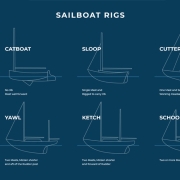
Yachting Consultants
Sale-Charter-Brokerage-Management
Headquarters:
34 Rue Caffarelli 06000 Nice, France
Front Office:
Boulevard de La Croisette – Port Canto 06400 Cannes, France
T.: +33 493 43 82 83 Email: [email protected] Website: www.alliedyachting.com

Please use a modern browser to view this website. Some elements might not work as expected when using Internet Explorer.
- Landing Page
- Luxury Yacht Vacation Types
- Corporate Yacht Charter
- Tailor Made Vacations
- Luxury Exploration Vacations
- View All 3659
- Motor Yachts
- Sailing Yachts
- Classic Yachts
- Catamaran Yachts
- Filter By Destination
- More Filters
- Latest Reviews
- Charter Special Offers
- Destination Guides
- Inspiration & Features
- Mediterranean Charter Yachts
- France Charter Yachts
- Italy Charter Yachts
- Croatia Charter Yachts
- Greece Charter Yachts
- Turkey Charter Yachts
- Bahamas Charter Yachts
- Caribbean Charter Yachts
- Australia Charter Yachts
- Thailand Charter Yachts
- Dubai Charter Yachts
- Destination News
- New To Fleet
- Charter Fleet Updates
- Special Offers
- Industry News
- Yacht Shows
- Corporate Charter
- Finding a Yacht Broker
- Charter Preferences
- Questions & Answers
- Add my yacht
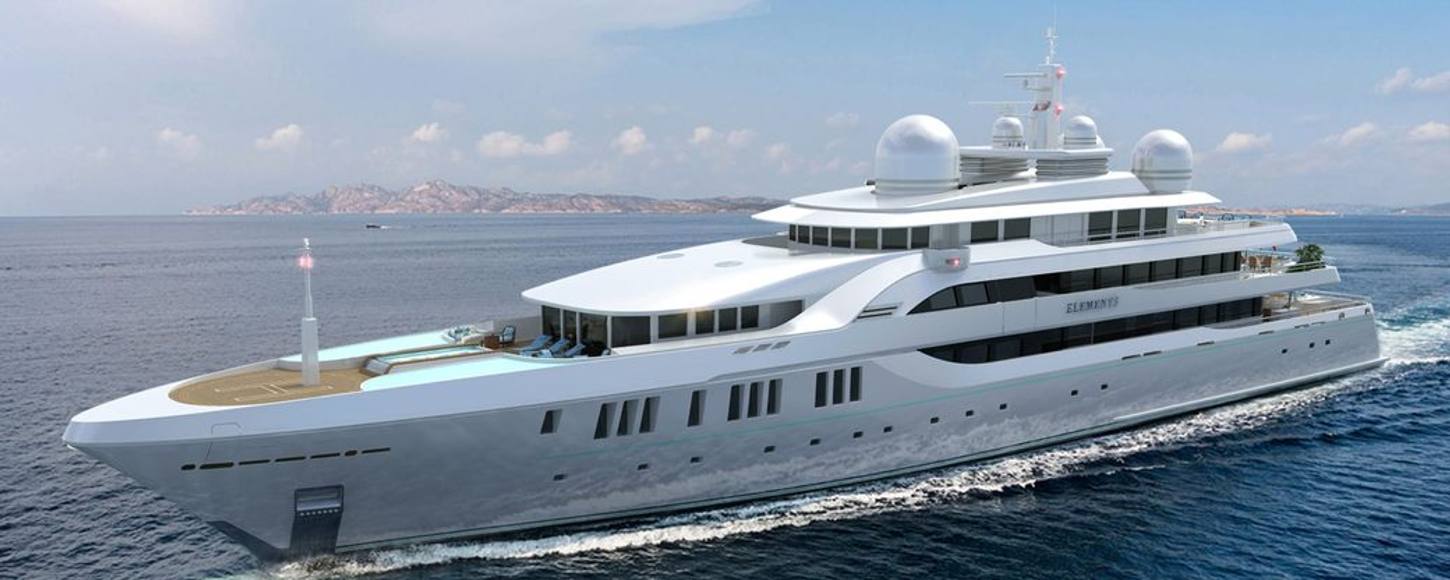
- Yacht Charter Fleet
- Luxury Yacht Charter Advice
Understanding the 12-Guest Rule for Yacht Charters
Maritime regulations pose limits on guest numbers
- Share this on Facebook
- Share this on X
- Share via Email
By Editorial Team 24 January 2023
"Why is there a 12-guest limit on the yacht I want to rent?" is a commonly-asked question among charterers considering booking a crewed yacht vacation for the first time. To help explain why the majority of charter yachts, regardless of size, have a 12-guest limit, we've outlined the reasons and some points to consider before booking a yacht vacation.
In this article:
12-guest limit on yacht charters explained
What is the reg yacht code, what does this mean for yacht charters, can i secure a yacht charter for more than 12 guests, tandem yacht charters, need more yacht charter advice.
In general, the number of guests allowed on board a charter yacht depends on the license it holds to carry passengers for yacht charters. This can be anything from 4 up to a maximum of 12 guests, usually commensurate with the size of the yacht.
If you are looking to entertain extended family, host your huge social circle for the vacation of a lifetime, or a mix of the two, you might be wondering why most charter yachts do not allow a higher number of guests, regardless of their size. Even for seasoned charterers, the limits can still be a point of contention.
This is largely to do with international maritime regulations, as yachts that carry more than 12 guests are legally considered to be passenger ships, which means they have to meet a different set of criteria to cruise at sea under the Passenger Yacht Code (PYC).
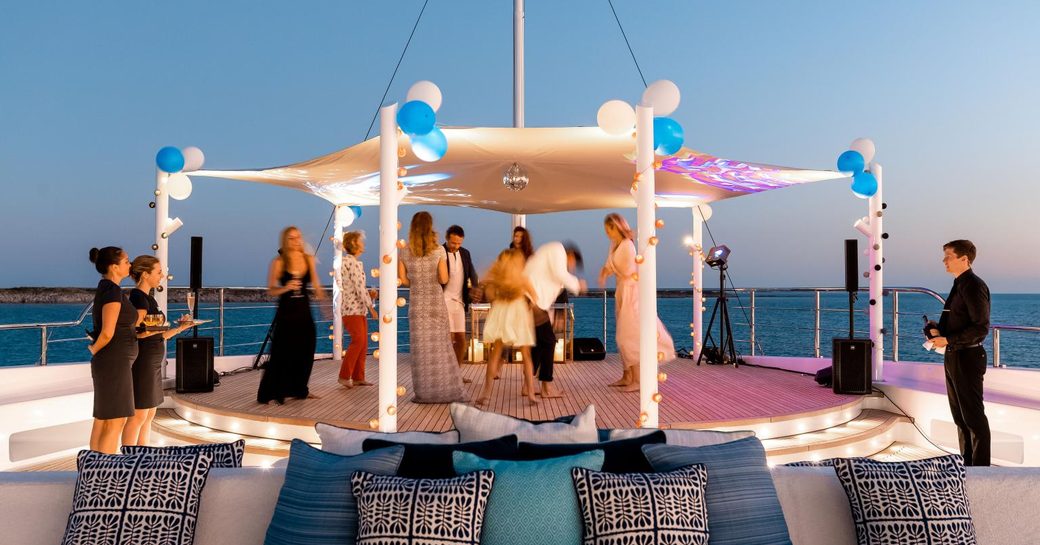
In 2017, the PYC was replaced with the Red Ensign Group (REG) Yacht Code , developed to be more specifically geared towards the superyacht industry.
This code sets out the technical, safety and operational standards for a yacht, including the number of passengers allowed on board. As a result, the code is made up of two parts;
- Part A – (updated version of the Large Yacht Code - LY3) applies to yachts 24 meters and over in load line length, in commercial use for sport or pleasure, do not carry cargo and not more than 12 passengers.
- Part B – (the updated version of the Passenger Yacht Code - PYC) applies to pleasure yachts of any size, in private use or engaged in trade (commercial charter), which carry more than 12 but not more than 36 passengers, and do not carry cargo.
The REG Yacht Code Part B is a superyacht alternative to full compliance with the Safety Of Life At Sea (SOLAS) convention. The latter is a set of rules applicable to most merchant or cruise ships.
The REG criteria for yachts carrying more than 12 passengers sets out strict rules governing design and construction standards, as well as other important safety measures.
Yachts will usually need to undergo rigorous testing, extensive surveying, hire more crew and may even need to be completely refitted. Unsurprisingly, this can be inconvenient, time-consuming and often prohibitively expensive for the owner.
Consequently, many yacht owners decide to keep the maximum number of guests onboard to 12 (plus crew) for chartering.
This means, for example, that an 80-meter yacht with 8 staterooms may well have the ability to sleep 16 guests while in private use, but on a commercial charter is only allowed to sleep 12 guests.
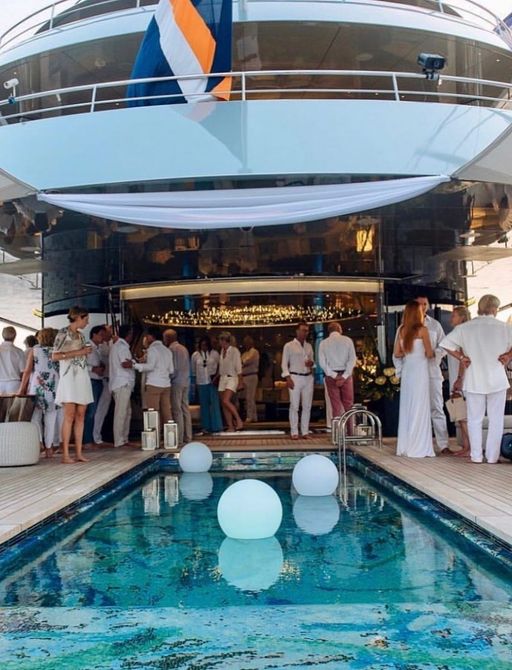
There is a fairly healthy selection of yachts available for charter that can sleep more than 12 guests on board. That said, if you are interested in securing one for your next yacht charter, it would be wise to inform your broker of your guest numbers as far in advance as possible as demand for these yachts can be high.
If you do not secure a luxury yacht rental that accommodates all of your party, tandem yacht charters are a popular alternative.
A tandem charter involves two or more vessels being booked together, and can provide a lot more flexibility. For example, guests may decide to split itineraries between yachts for particular activities (one yacht could take a group sport-fishing, the other for a day's pampering) or divide the yachts up between adults and younger ones (with accompanying staff, if applicable).
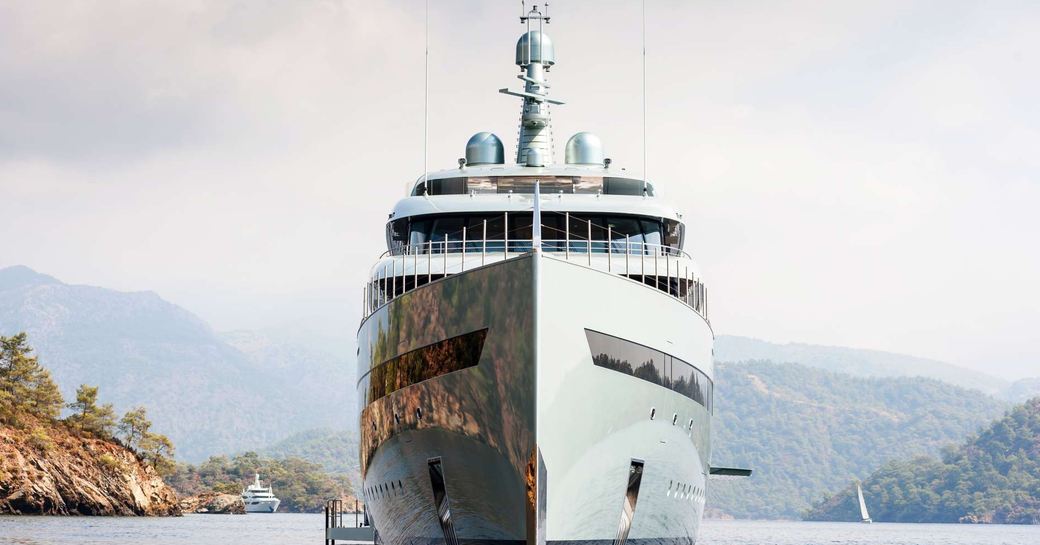
For more advice on booking a luxury yacht charter , please speak with your preferred yacht broker . Whether you are looking for assistance on booking a charter suitable for 12 guests or under, or for a vessel that can cater to a much larger party, a broker will be able to carefully curate a vacation entirely to your needs and requirements.
Take a look at our advice guides for more information on chartering a superyacht, covering everything from charter contracts to yacht vacation packing tips.
Related advice articles

- Share on Linked In
Yacht Reviews
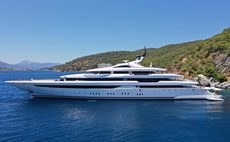
- See All Reviews

Charter Yacht of the week
Start Planning - Speak with a Charter Expert
Our charter experts will:
- Discuss your vacation plans
- Check availability & shortlist suitable yachts
- Negotiate booking & prepare your itinerary
Enquire now for yacht availability & free consultation.
Featured Luxury Yachts for Charter
This is a small selection of the global luxury yacht charter fleet, with 3659 motor yachts, sail yachts, explorer yachts and catamarans to choose from including superyachts and megayachts, the world is your oyster. Why search for your ideal yacht charter vacation anywhere else?
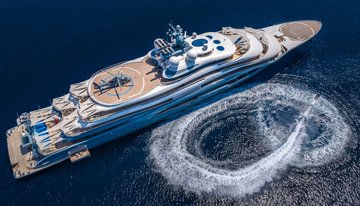
136m | Lurssen
from $4,288,000 p/week ♦︎
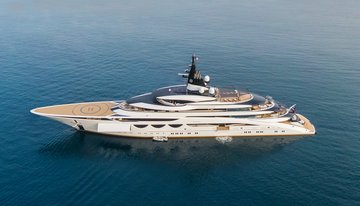
115m | Lurssen
from $2,787,000 p/week ♦︎
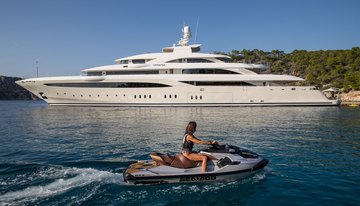
85m | Golden Yachts
from $965,000 p/week ♦︎
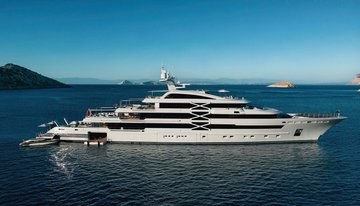
88m | Golden Yachts
from $1,179,000 p/week ♦︎
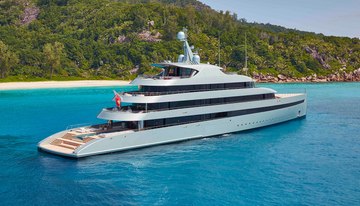
84m | Feadship
from $1,072,000 p/week ♦︎
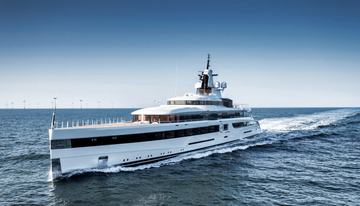
93m | Feadship
from $1,501,000 p/week ♦︎
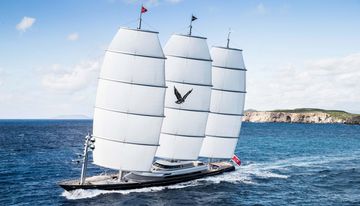
Maltese Falcon
88m | Perini Navi
from $490,000 p/week
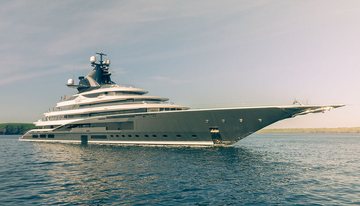
122m | Lurssen
from $3,000,000 p/week
As Featured In
The YachtCharterFleet Difference
YachtCharterFleet makes it easy to find the yacht charter vacation that is right for you. We combine thousands of yacht listings with local destination information, sample itineraries and experiences to deliver the world's most comprehensive yacht charter website.
San Francisco
- Like us on Facebook
- Follow us on Twitter
- Follow us on Instagram
- Find us on LinkedIn
- Add My Yacht
- Affiliates & Partners
Popular Destinations & Events
- St Tropez Yacht Charter
- Monaco Yacht Charter
- St Barts Yacht Charter
- Greece Yacht Charter
- Mykonos Yacht Charter
- Caribbean Yacht Charter
Featured Charter Yachts
- Maltese Falcon Yacht Charter
- Wheels Yacht Charter
- Victorious Yacht Charter
- Andrea Yacht Charter
- Titania Yacht Charter
- Ahpo Yacht Charter
Receive our latest offers, trends and stories direct to your inbox.
Please enter a valid e-mail.
Thanks for subscribing.
Search for Yachts, Destinations, Events, News... everything related to Luxury Yachts for Charter.
Yachts in your shortlist
Understanding Yacht Chartering Costs: A Comprehensive Guide

Imagine sailing the open seas, surrounded by azure waters, and basking in the luxury of a private yacht. Yacht chartering offers a unique and exhilarating experience, but it’s essential to understand the costs associated with it before embarking on this adventure. In this comprehensive guide, we will break down the various expenses involved in chartering a yacht, from the base charter rates to additional fees and seasonal price variations. We’ll also provide you with valuable tips on how to budget effectively for your dream yacht charter.
Base Charter Rates
The base charter rate is the starting point for calculating the cost of your yacht charter. This rate typically covers the rental of the yacht itself for a specific duration, which can range from a few days to several weeks. The base charter rate varies widely depending on several factors:
- Yacht Size and Type: Larger and more luxurious yachts come with higher base charter rates. Motor yachts are generally more expensive than sailing yachts due to their higher operational costs.
- Yacht Age and Condition: Newer yachts in excellent condition command higher charter rates than older vessels.
- Location: The location of your charter significantly influences the base rate. Popular destinations like the Mediterranean, the Caribbean, and the Bahamas tend to have higher prices and local taxes.
- Time of Year: Peak chartering seasons in specific regions can lead to higher base rates. For instance, the Caribbean can be more expensive during the winter months when the weather is ideal.
- Duration: Longer charters may offer lower daily rates compared to shorter ones.
- Inclusions: Some charters include additional amenities such as water toys, scuba equipment, or a chef. These extras can impact the base rate.
Additional Fees
Understanding the additional fees associated with yacht chartering is crucial for budgeting effectively. These fees can significantly impact the total cost of your charter:
- Fuel: Yachts consume fuel, even sailing yachts, and you may be responsible for covering these costs. Fuel expenses can vary depending on the yacht’s size, distance traveled, and usage of amenities like air conditioning and water sports equipment.
- Crew: Most charter yachts come with a crew that includes a captain, chef, or possibly a stewardess, and deckhand. The crew’s salaries and gratuities are usually included in the base rate, but it’s customary to tip them, often around 15-20% of the base charter rate.
- Provisions: You may need to budget for food and beverages during your charter. You can either purchase your provisions locally or opt for a fully provisioned charter, where the crew stocks the yacht with your preferred items.
- Dockage and Marina Fees: When you choose to dock at marinas or ports, you’ll incur fees. These fees can vary widely, and the more popular the destination, the higher the costs.
- Taxes and Permits: Some regions may require specific permits or impose taxes on yacht charters. Be sure to inquire about these expenses before booking.
- Communication and Entertainment: If you require internet access or want to use satellite TV, you may have to pay extra for these services.
- Optional Extras: Water sports equipment, scuba diving, and excursions are often available for an additional fee.
Seasonal Price Variations
The time of year you choose for your yacht charter can significantly affect the overall cost:
- High Season: The high season typically corresponds to the best weather conditions in a given region. Charter rates are at their peak during this time, so expect higher prices.
- Low Season: Chartering during the off-peak season can yield cost savings. However, be prepared for less predictable weather.
- Shoulder Season: Consider chartering during the shoulder season, which falls between the high and low seasons. You may enjoy good weather and more reasonable rates.
Tips for Budgeting
Here are some tips to help you budget effectively for your yacht charter:
- Set a Clear Budget: Determine your total budget, including the base charter rate, additional fees, and discretionary expenses. Stick to it to avoid overspending.
- Plan Ahead: Book your charter well in advance to secure better rates and availability, especially during peak seasons.
- Opt for Inclusive Packages : Fully provisioned or all-inclusive charters can simplify your budgeting by covering many expenses upfront.
- Be Mindful of Crew Gratuity: Factor in the crew’s gratuity when planning your budget. It’s a significant expense and a customary practice.
- Consider Trip Insurance: Trip insurance can protect you from unforeseen circumstances and potential additional costs.
- Review the Charter Agreement: Thoroughly review the charter agreement to understand what is and isn’t included in your charter rate.
Yacht chartering can be an unforgettable experience, and understanding the costs involved is essential to ensure a stress-free journey. By considering base charter rates, additional fees, and seasonal price variations, and following our budgeting tips, you can embark on your yacht charter adventure with confidence, knowing that you’ve planned for a seamless and enjoyable voyage on the high seas. Happy sailing!
Get a Quote
Are you ready to let us show you what we can do for you? We can’t wait! This is as exciting for us as it is for you. We began this business because we love putting the perfect yacht charter together for our clients and getting the best of the best at the right price point thanks to our contacts and experience.
Use our quick contact form to give us the basics about what you’re looking for and we’ll send you ideas and pricing. Don’t worry if it’s not grand enough or should be scaled back; we’ll take care of that too. When you love the plan, we put it into action. All you have to do is show up and enjoy.
More Vacation Tips
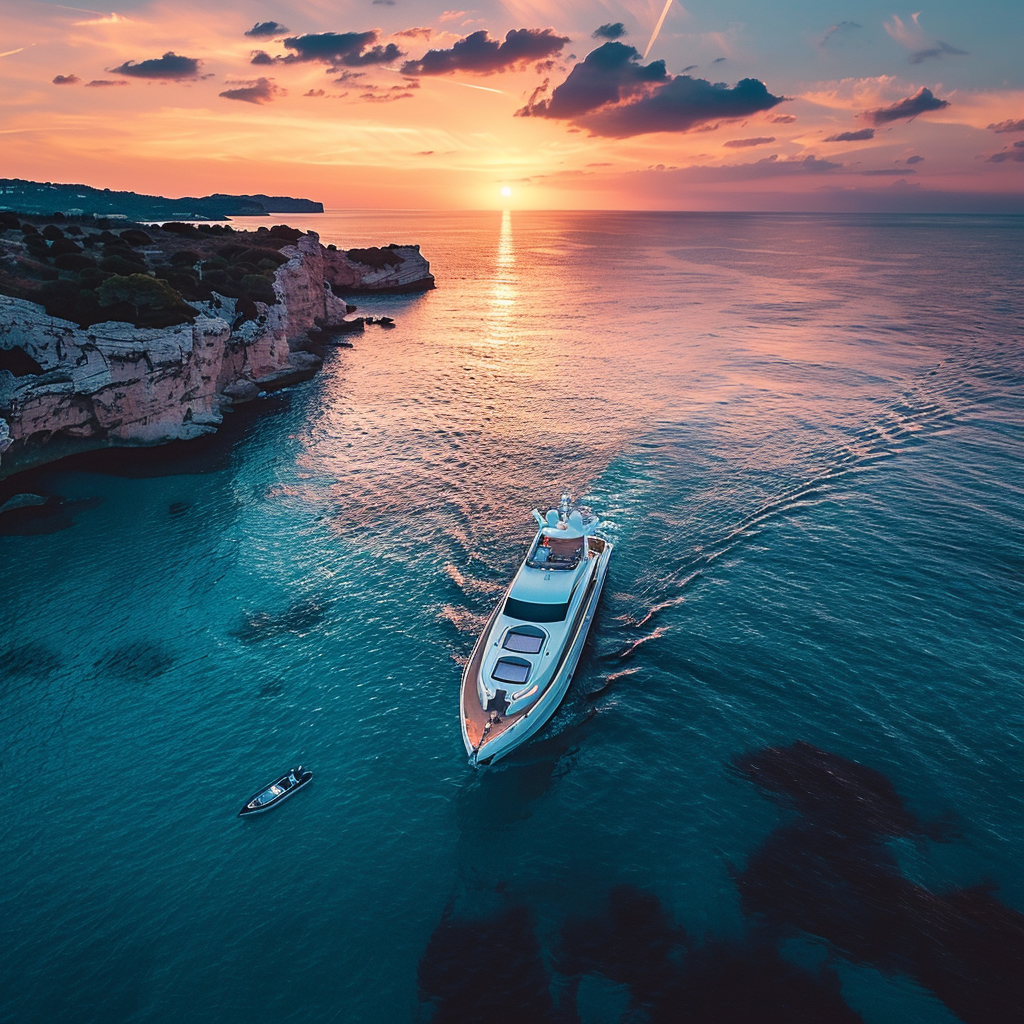
Why a Yacht Charter Is the Ultimate Vacation Experience
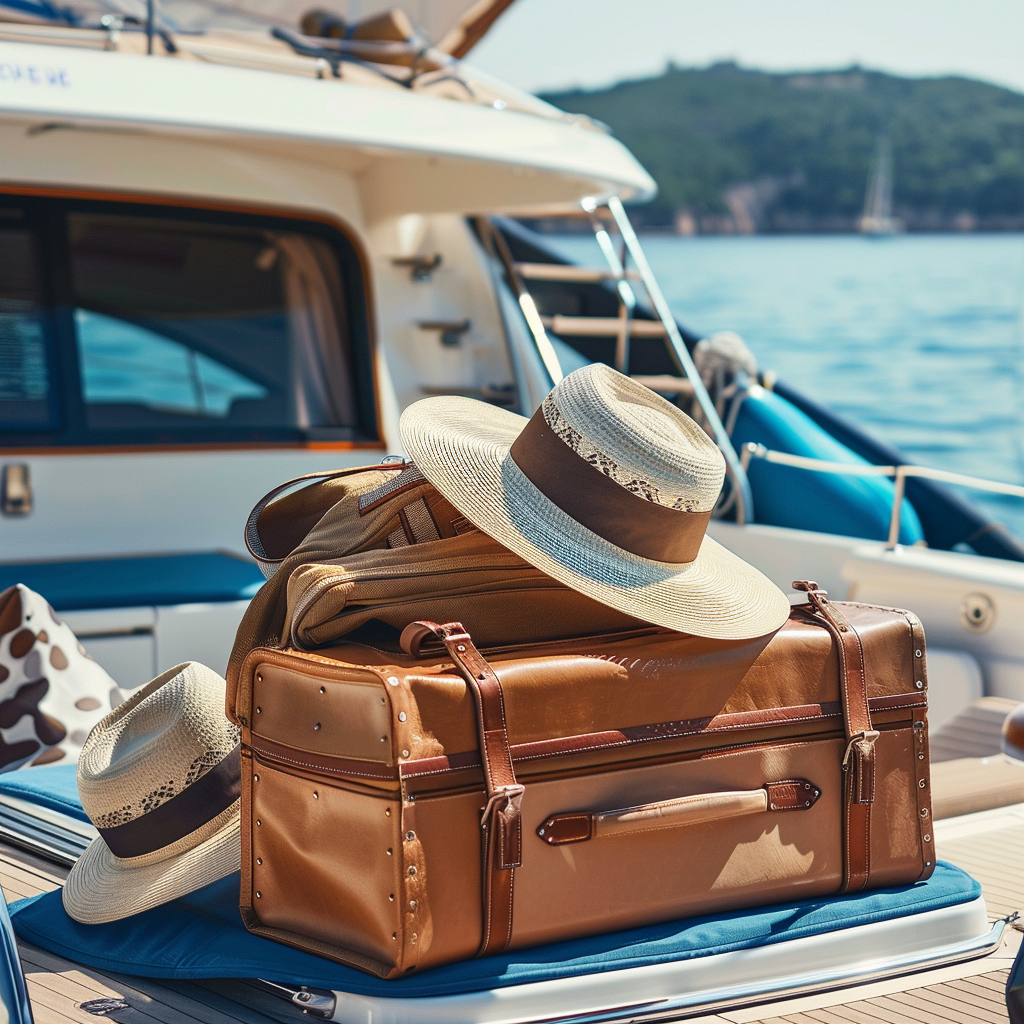
Top Tips for Packing for a Yacht Charter Vacation
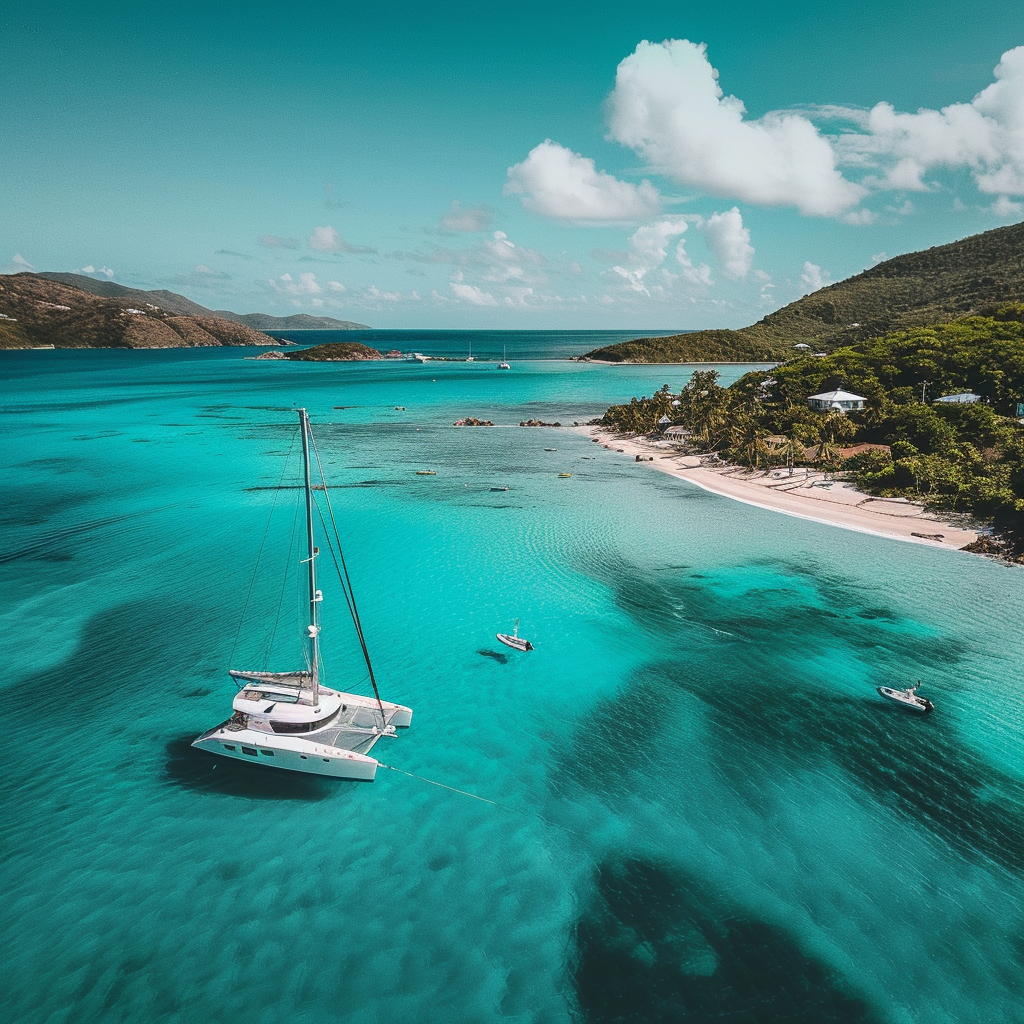
Top Anchorages and Beaches in the British Virgin Islands for Yacht Charters

What Does Yacht Mean? (The Definition and History Explained)
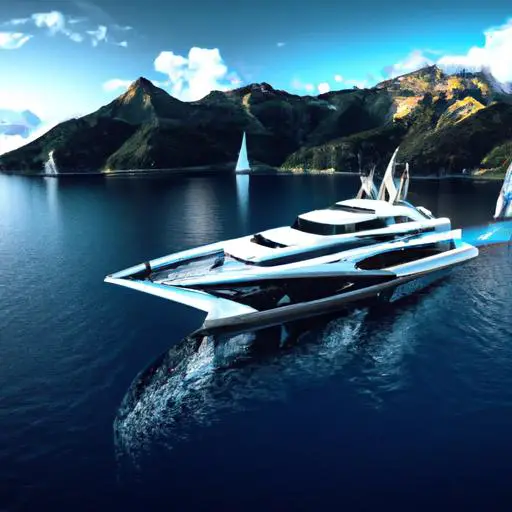
Ah, the luxurious lifestyle of the yacht.
Whether youve seen one in the harbor or on a distant horizon, the image of a yacht has a certain allure and mystique.
But what exactly is a yacht? From the definition to the different types, the history, and the lifestyle, there is so much to explore.
In this article, we will uncover the mysteries of the yacht, and explore the different types, the races, and the luxury amenities that come with them.
Get ready to set sail!.
Table of Contents
Short Answer
Yacht is a term used to describe a recreational boat or vessel that is used for pleasure trips and sailing.
It typically refers to a larger, more luxurious boat than a regular fishing or leisure boat.
Generally, yachts are meant for longer trips, usually with more than one person on board.
Yachts can range in size depending on the type of boat and its intended use, but all will typically include luxury features and amenities for a comfortable and enjoyable experience.
The Definition of Yacht
Yacht is a term often used to describe a variety of large and luxurious recreational boats, typically used for personal pleasure or sport.
Yachts can be defined as any boat or vessel that is used for leisure and recreational activities.
While the term yacht may be used to describe any kind of boat, it is most commonly used to refer to large, expensive boats designed for recreation, luxury, and leisure.
These vessels are typically larger than other recreational boats, and can range from modest day-sailers to luxury mega-yachts with all the amenities of a home.
Yachts are usually crewed by professional or paid crew and can be used for activities such as fishing, cruising, racing, and even as a floating holiday home.
Yachts may be owned either by individuals or by companies, and typically contain a variety of amenities such as staterooms, sleeping areas, dining areas, and entertainment areas.
Yachts are often used in the charter industry, where they are rented for short-term use, and can be found in harbor cities and coastal towns around the world.
Yachting is a popular recreational activity that has been around for centuries, and can be traced back to ancient Greece.
Yachting has long been associated with wealth and luxury, with the earliest yachts being owned by wealthy aristocrats.
In modern times, yachting has become more accessible to people of all backgrounds, with a variety of yachting activities and vessels available to meet a variety of budgets and preferences.
The term yacht is derived from the Dutch word jacht, which translates to hunt.
The term was originally used to refer to small, fast vessels used by the Dutch navy to chase and capture pirates.
Over time, the term has come to refer to large, luxurious recreational vessels that are often used for pleasure and leisure.
Yachts have become a symbol of wealth and luxury, and are often associated with the lifestyles of the rich and famous.
Types of Yachts

When it comes to yachts, there are several different types available.
The most common type is the sailing yacht, which is propelled through the water by sails and is typically smaller than other types of yachts.
Motor yachts, on the other hand, are powered by an engine and are typically larger than sailing yachts .
Another popular type of yacht is the sport fishing yacht, which combines the luxury of a motor yacht with the convenience of fishing.
These yachts often have advanced navigational equipment, fishing tackle, and other amenities.
Finally, there are luxury yachts, which are the most luxurious of all yachts and typically feature amenities such as jet skis, hot tubs, and full-service bars.
No matter which type of yacht you choose, they all provide a luxurious experience on the water.
Yacht Racing
Yacht racing is one of the most popular activities associated with yachts, and it has a long and storied history.
Yacht racing dates back to the 1800s and has been a popular pastime ever since.
The sport is often divided into two main categories: offshore and inshore racing.
Offshore racing involves navigating the open waters of the ocean, while inshore racing is confined to the waters near shore.
In both types of racing, yachts compete against each other to see who can complete the course in the shortest amount of time.
Yacht racing is typically governed by the rules and regulations of the International Sailing Federation, which sets out a standard for the equipment and safety of the yachts and the sailors onboard.
Yacht racing is a highly competitive sport, and it is a great way to test the skills and strategies of the crew.
There are a variety of different classes of yacht racing, ranging from small dinghies and keelboats to large ocean-going yachts.
The most prestigious class of yacht racing is the America’s Cup, which is the oldest and most prestigious sailing race in the world.
The America’s Cup has been held since 1851 and is now held every four years in a different location.
Yacht racing is an exciting and challenging sport, and it is one of the most popular activities associated with yachts.
Whether it is a day sail or a full-fledged race, yacht racing is a great way to experience the thrill of sailing and the camaraderie of the crew.
Yacht Charters & Cruising

When people think of yachts, they usually think of luxury and leisurely cruising around the ocean.
Yacht charters have become increasingly popular, allowing people to enjoy the freedom of the open seas without having to purchase their own yacht.
Yacht charters offer a variety of packages, depending on the size and amenities of the yacht, the type of cruise being taken, and the number of people being accommodated.
Chartering a yacht is a great way to explore a variety of destinations and enjoy a variety of activities, from fishing and swimming to sightseeing and sunbathing.
Yacht charters typically include a professional crew to manage the vessel, as well as a variety of amenities such as a chef, cabin crew, and a variety of water toys.
Some charter companies even offer special packages for romantic getaways, corporate retreats, or special occasions.
Safety is always a priority when it comes to yacht charters, and all vessels must adhere to strict safety regulations.
All vessels must be inspected and certified by the relevant maritime authority and must be equipped with the necessary safety equipment.
Yacht charters are typically subject to local laws and regulations and must be operated in accordance with all applicable laws and regulations.
Whether youre looking for a private escape or a unique corporate event, yacht charters offer a luxurious and convenient way to explore the open seas.
From discovering new destinations to enjoying the comforts of home away from home, yacht charters provide an unforgettable experience for all.
The History of Yachts
The term yacht has been around since the 1600s, and it has come to represent a broad range of luxurious recreational boats.
The word itself is derived from the Dutch term jacht, which translates to hunt.
In the 1600s, yachts were used for military purposes, such as scouting and patrolling.
Over time, however, the term yacht has come to refer to any large, luxurious recreational boat.
Modern yachts are typically larger than other recreational boats, and range from modest day-sailers to luxury mega-yachts with all the amenities of a home.
Yachts are typically crewed by professional or paid crew and can be used for activities such as fishing, cruising, racing, and even as a floating holiday home.
The evolution of the yacht has been quite remarkable.
In the late 1800s and early 1900s, yachts were primarily used by the wealthy and elite to show off their wealth and status.
Yachts of this era were often quite elaborate and ornate, with richly decorated decks, lavish interior spaces, and even an onboard orchestra.
As technology improved, so did the capabilities of yachts.
In the late 1920s, the modern sailing yacht was invented and became the norm, allowing for a more comfortable and efficient sailing experience.
In the mid-20th century, motor yachts were developed, making navigation and speed much easier.
By the latter part of the 20th century, yacht builders began to focus more on luxury and comfort, with modern yachts featuring amenities such as spas, fitness centers, multiple decks, luxurious cabins, and more.
Today, yachts are still seen as a symbol of wealth and status, and there is a great deal of competition in the luxury yacht market.
There are many different types of yachts to choose from, from modest day-sailers to mega-yachts that can cost millions of dollars.
Yachts of all sizes can be used for a variety of activities, from fishing, cruising, and racing, to simply enjoying the beauty of the open sea.
The Yacht Lifestyle

Yachting is more than just a leisure activity; it is a lifestyle.
From the outside, it might appear to be a glamorous and luxurious pursuit, but there is much more to it than that.
Yachting is a unique way of life that is rich in adventure, exploration, and relaxation.
It is an escape from the hustle and bustle of everyday life, allowing you to explore the world in a more intimate and luxurious way.
Yachting provides an opportunity to experience the world in a way that is both exciting and luxurious.
Whether it be racing around the world or simply enjoying the gentle breeze of a summer day, yachting is a great way to explore the world.
You can explore remote destinations, experience different cultures, and even explore the depths of the sea.
With a yacht, the possibilities are truly endless.
The yacht lifestyle is also a great way to relax and enjoy the finer things in life.
With a yacht, you can enjoy the luxury of a five-star hotel, complete with a dedicated crew to cater to your needs.
On board, you can enjoy fine dining, top-shelf drinks, and all the amenities of a luxurious hotel.
You can also take advantage of the yacht’s amenities, such as a gym, swimming pool, spa, and even a movie theater.
The yacht lifestyle also offers the opportunity to meet new people and build relationships.
With a yacht, you can travel to different ports and meet new people from all over the world.
You can also host events on board, from intimate dinner parties to large gatherings.
At the end of the day, the yacht lifestyle is about living life to the fullest.
It is about exploring the world in luxury and relaxation.
It is about creating memories that will last a lifetime.
Whether you are a racing enthusiast or simply looking for a way to escape from the everyday grind, the yacht lifestyle is an unparalleled experience that is sure to provide a lifetime of memories.
Luxury Amenities of Yachts
When it comes to luxury and comfort, yachts are in a class of their own.
From plush furnishings and spacious cabins to state-of-the-art entertainment systems and private chef-prepared meals, yachts have all the amenities of a home but with the added benefit of being able to take them anywhere in the world.
Whether you’re looking to cruise the Mediterranean, fish the Pacific, or just relax in the Caribbean, yachts are the perfect way to do it in style.
Most yachts come equipped with fully-stocked wet bars, hot tubs, and even private movie theaters, making them the perfect place to entertain family and friends.
There are also plenty of options when it comes to entertainment, from game rooms to fishing equipment, and even water-sports equipment for those looking for a more active vacation.
Yachts also come equipped with the latest navigation and communications systems, so you can stay connected with the world even when you’re out at sea.
With satellite-based communication, you can even stay connected with friends and family back home.
Finally, when it comes to luxury amenities, yachts are the perfect way to pamper yourself.
From private spa treatments to personal chefs and masseuses, yachts provide the perfect opportunity to indulge and relax in style.
Final Thoughts
Yacht is a term that has a long and fascinating history, and today there are a variety of yachts that range from modest day-sailers to luxurious mega-yachts.
Yachts can be used for a variety of activities such as racing and cruising, and also offer a unique lifestyle with various luxury amenities.
If you’re looking to experience the luxury of a yacht, consider chartering one for a special occasion or take a sailing course to learn more about the yacht lifestyle.
No matter what, you’re sure to have a memorable experience.
James Frami
At the age of 15, he and four other friends from his neighborhood constructed their first boat. He has been sailing for almost 30 years and has a wealth of knowledge that he wants to share with others.
Recent Posts
When Was Banana Boat Song Released? (HISTORICAL INSIGHTS)
The "Banana Boat Song" was released in 1956 by Harry Belafonte. This calypso-style song, also known as "Day-O," became a huge hit and remains popular to this day for its catchy tune and upbeat...
How to Make Banana Boat Smoothie King? (DELICIOUS RECIPE REVEALED)
To make a Banana Boat Smoothie King smoothie at home, start by gathering the ingredients: a ripe banana, peanut butter, chocolate protein powder, almond milk, and ice. Blend the banana, a scoop of...

- Marine Engineering
- Yacht Services
- Yacht Surveys
- Yacht Electrician
- Megger Testing
- Marina Electrical Services
- Industrial Electrical
- Commercial Electrical
- Residential Building Electrical
- LED Lighting
- Industrial Lighting
- Electric Vehicle Charging Stations
- Sales & Parts
- Service Request
- Sales Request

- Privacy Policy
- Terms & Conditions
- RH Marine Group
Understanding Yacht Classifications – Definitions, Explanations, and Regulations

Yacht classifications, also known as classification societies or class societies , are an important part of maritime safety. These classifications dictate the design, construction and ongoing maintenance of large commercial vessels and yachts.
The classifications provide highly detailed and technical standards that cover the yacht’s hull, its engines, and key safety systems. The application of common safety requirements to personal vessels like yachts is something relatively new, so the procedures are constantly evolving. Typically, it is dependant on the service and the flag of the yacht.
Standard Yacht Types
Before discussing the different types of yacht classifications, it’s important to understand the different yacht types. Yachts are typically segmented based on the overall length and how many passengers they can accommodate. The standard yacht classification types are large yachts or luxury sailing yachts, commercial yachts, and private yachts.
Large Yachts
Large yachts, also known as luxury yachts, is the largest classification type for yachts. A large yacht has a load line length equal to or over 24m or about 80 feet. Just about every flag administrations have adopted safety codes for large yachts. Therefore, this is the only yacht definition having a universal meaning in the international regulatory framework of yachts.
Commercial Yachts
Commercial yachts are ones that are used for commercial use, whether it be sport or charter. These ships do not transport or carry any cargo and carry no more than 12 passengers.
All flag states require that commercial yachts are certified in accordance with a specific large yacht safety code. The most widely used safety code is the MCA Large Commercial Yacht Code (LY2) published in 2004.
Private Yachts
Private yachts are typical pleasure vessels used for the recreational and leisure purpose of its owner and his guests. In some cases, they are also known as cruising yachts.
What Is A Classification Society?
Classification societies are organizations that set the rules that govern the construction, maintenance, and operation of yachts and vessels. Currently, there are 13 members of the International Association of Classification Societies . Classification societies were first started when insurance underwriters at Lloyd’s of London set standards for the ships that they would ensure.
As a result, Lloyd’s Register of Shipping (LR) was the original classification society. While many of the 13 members do not classify yachts, they cover everything from container ships to supertankers.
The main class societies involved in yachting are the American Bureau of Shipping, Bureau Veritas, Det Norske Veritas, Germanischer Lloyd, Lloyd’s Register, and RINA.
What Is A Flag State?
A vessel’s flag state is the jurisdiction or nationality under whose laws the vessel is registered or licensed. The flag state has the authority and responsibility to create regulations for vessels registered under its flag. These typically involve those relating to the inspection, certification, and issuance of safety and pollution prevention documents for a vessel.
Different flag administrations may perform inspections on the safety aspects of yachts using their own inspectors or use classification societies or other recognized organizations to perform these inspections.
The main flag authorities in the yachting industry are the UK-MCA, Cayman Islands, Isle of Man, Malta, the Marshall Islands, Italy, and Luxembourg.
What Is The Classification Process
The first step of classification involves the assessment of a yacht’s designs and regular inspections during the construction or conversion of a yacht. Once it is confirmed that all standards have been met, a certificate of classification is issued.
The certificate details the standards met, the intended use for the vessel, and whether the vessel should be used only in sheltered waters. The certificate is evidence that a yacht meets industry standards but isn’t necessarily a guarantee of seaworthiness.
Maintaining classification is achieved through regular surveys. These surveys, also known as ‘special’ surveys, typically take place every five years. These surveys assess things like the thickness of the hull, possible fractures, and other potential damage. They also consider the condition of electrical systems, machinery, and equipment.
Mandatory Classification Certificates
There are a variety of different classification certificates. The number and type of the mandatory certificates for a given ship will depend on its size.
International Tonnage Certificate This expresses the internal volumes of the yacht in gross tons. Unlike displacement tonnage, this does not quantify the weight of a vessel.
Large Yacht Code Certificate This certificate covers navigational and signaling equipment, life-saving appliances, fire protection, means of escape, and manning and crew accommodation.
Class Certificate This mainly deals with the yacht’s hull, machinery, electrical equipment, and outfitting.
International Load Line Certificate This certificate covers the weather-tightness of the yacht.
Safety Radio Certificate This certificate only applies if gross tonnage exceeds 300GT. It covers radio communication and distress installations.
MARPOL Annex I Certificate This certificate only applies if gross tonnage exceeds 400GT and covers the disposal of oil and bilge water.
MARPOL Annex IV Certificate This certificate only applies if gross tonnage exceeds 400GT or the yacht is certified to carry more than 15 people and covers the disposal of sewage from ships.
MARPOL Annex V This certificate covers the disposal of rubbish and applies to all ships.
MARPOL Annex VI This is applicable if gross tonnage exceeds 400GT as well as to all main and auxiliary engines with a power exceeding 130kW. It concerns the emissions from main and auxiliary engines (NOx and SOx).
Safety Construction and Safety Equipment These cover machinery, electrical parts, life-saving and navigational equipment for yachts with a gross tonnage above 500GT.
International Safety Management Certificate This only applies to yachts with a gross tonnage greater than 500GT. A certified management company is requested to carry out this service, preparing operational manuals, procedures for drills, and taking care of the maintenance of the yacht and its installations.
International Ship and Port Security Certificate This only applies to yachts and ships with a gross tonnage greater than 500GT and covers the anti-piracy certification. A certified management company is requested to provide ashore assistance and establish onboard procedures and operational manuals.
Keeping Your Yacht Up To Classification
Tess Electrical has years of experience in maintaining yachts and commercial vessels. We deal with vessels 125’ and above, which have more complex systems dictated by Classification, Flag State and Insurance requirements. Even if vessels are not classed, we can still maintain them to those standards.
Give us a call or send us an email to speak with one of our experienced marine engineers about developing a maintenance strategy for your yacht today.
Recent Posts

We are a Marine Electrical Service Company servicing mostly in the Large Mega Yacht Industry and Marine Land Installations (marinas, resorts, apartments, docks, etc). We have mobile Technicians who cover the tri county area (Broward, Palm Beach and Dade) in their fleet of vehicles.

- Marine Electrical
- Land Division
- ShipServ Ship Supply
Our Services
- Fluorescent To LED Conversion
- All Land Services
- All Marine Services
Sales & Support
- Sales Request Form
Our Location
Tess Electrical LLC
Example sentences private yacht
Has a 25m pool, one of the largest on a private yacht .
They have all been oak-panelled to within an inch of their life, like 'cabins on a private yacht '.
Richer travellers pay €2,000 a head to travel in a private yacht .
To help to pay for his tuition he worked as a boat captain on a private yacht .
It has original carvings, beams, balconies, wells, even original kitchen sinks - plus a non-original, but rather lovely, spa and private yacht .
Definition of 'private' private

Definition of 'yacht' yacht
Related word partners private yacht.
Browse alphabetically private yacht
- private view
- private viewdata
- private villa
- private yacht
- private-equity company
- private-line car
- private-public partnership
- All ENGLISH words that begin with 'P'
Wordle Helper

Scrabble Tools
Quick word challenge
Quiz Review
Score: 0 / 5

COMMENTS
The typical maritime definition of a yacht is a private pleasure ship of at least 33 feet. As we stated at the outset, YachtWorld generally considers anything in the 35-40-foot range (or larger) a yacht. However, there are exceptions, ...
Commercial yacht. A motor or sailing vessel in commercial use (i.e. charter) for sport and pleasure, carrying no cargo and not more than 12 passengers. Private yacht. A pleasure vessel solely used for the recreational and leisure purpose of its owner and his guests. Flag administration.
Private Yachts: Crews on private yachts often develop a deep bond with the owners. They understand the owner's preferences, habits, and desires. It's a dance of familiarity, where words are often unnecessary. Charter Yachts: The crew is well-trained to adapt quickly to the needs and wants of different guests.
Yacht. A 45-foot cruising yacht in 2010. The superyacht Azzam, the longest private yacht, as of 2018. [1] A yacht ( / jɒt /) is a sailing or power vessel used for pleasure, cruising, or racing. [2] [3] [4] There is no standard definition, though the term generally applies to vessels with a cabin intended for overnight use.
In the most straightforward terms, a private yacht charter simply means 'yacht rental'. Whether it's a small catamaran or a 100m+ superyacht, the expression refers to the hiring of a yacht for the purposes of vacationing with family and friends, or entertaining clients in style. A vital distinction to be aware of is the difference between ...
The simplest definition is that a yacht is a ship that is designed for prolonged journeys by sea. These types of vessels are typically used for pleasure cruises, but some are also meant for racing. A yacht can range in size from small enough to accommodate just a few people to sprawling ships that can hold dozens, with larger versions typically ...
This usually amounts to roughly 50 - 55% of the base price of the yacht charter cost. This would mean that a private charter yacht in Greece with a base price of $100,000 for the week will cost $155,000 in total. This article will help explain the yacht provisioning rates more . Depending on the above factors, you can usually charter a ...
A Private Vacation Platform. With an entire state-of-the-art yacht as your designated "suite", you'll enjoy 360-degree views of a different picturesque backdrop every single day. These catamarans are between 45' and 58' long, providing a stable, intimate platform for your unique cruising getaway. The only other guests onboard are the ...
Yacht definitions: A brief history. Whilst boating for fun dates back to Ancient Egypt and possibly even further than that, the word yacht comes from the Dutch 'jachtschip', which means hunting ship. Jachts were originally a class of sailboat used in the 16th century to hunt down enemies of the Dutch Republic.
Private charter yachts are those that allow guests to hire the entire boat - essentially it's a yacht rental. This means the biggest difference between charter yachts and normal liveaboards, is that you'll have the whole boat to yourself. Of course, each charter vessel will have its own rental agreement to specify the finer details of your ...
Owners moving from smaller yachts into those over roughly 80 feet will quickly learn a new alphabet: ABS, DNV, BV, LR, RINA, and more. These are organizations that set rules governing the construction, maintenance, and operation of yachts. Called "classification societies," there are 13 members of the International Association of ...
Chartering a luxury yacht is going to be unlike any other vacation you've taken. From the high level of privacy and exclusivity to the attentive crew and private chef to cater to your every dietary need and request, to five-star accommodations and the ability to customize your itinerary to drop anchor where and when you like, a yacht charter puts you in the spotlight to design the ultimate ...
Top Destinations for Chartering a Yacht Around the World. Some of the best boat charter destinations include: The French Riviera, where a private yacht will let you enjoy the iconic area while avoiding the infamous crowds.; The Greek Isles, where you can explore the unspoiled landscapes to your heart's content.
This year in the Caribbean, Sheila Ruffin of Soca Yacht Charters has launched a "Stranger on the Seas" package. Prices start at around $6,000 per person—all-inclusive—on catamarans between ...
Class Societies have often developed two separate sets of Rules for Commercial and Private Yachts. They can be applied to New Construction as well as Existing Yachts. Classification Societies. ... meaning each letter or number will represent a different characteristic for each society. Each mark can be broken down to highlight a yacht's ...
Consequently, many yacht owners decide to keep the maximum number of guests onboard to 12 (plus crew) for chartering. This means, for example, that an 80-meter yacht with 8 staterooms may well have the ability to sleep 16 guests while in private use, but on a commercial charter is only allowed to sleep 12 guests.
Here are some tips to help you budget effectively for your yacht charter: Set a Clear Budget: Determine your total budget, including the base charter rate, additional fees, and discretionary expenses. Stick to it to avoid overspending. Plan Ahead: Book your charter well in advance to secure better rates and availability, especially during peak ...
The Definition of Yacht. Yacht is a term often used to describe a variety of large and luxurious recreational boats, typically used for personal pleasure or sport. ... Whether youre looking for a private escape or a unique corporate event, yacht charters offer a luxurious and convenient way to explore the open seas.
Most commercial vessels and large private yachts are classified, meaning that the vessel meets or exceeds a set of standards and rules for design, construction and maintenance that are promulgated by the classifying society. Marine engineers, naval architects and other marine professionals employed by the societies are responsible for ...
The standard yacht classification types are large yachts or luxury sailing yachts, commercial yachts, and private yachts. Large Yachts. Large yachts, also known as luxury yachts, is the largest classification type for yachts. A large yacht has a load line length equal to or over 24m or about 80 feet.
PRIVATE YACHT definition | Meaning, pronunciation, translations and examples
PRIVATE YACHT meaning | Definition, pronunciation, translations and examples in American English
private yacht means any yacht not carrying passengers for hire, not engaged in trade or commerce, and being used solely for pleasure or recreational purposes of its owner. More specifically, to be considered a private yacht, the yacht must be: Sample 1 Sample 2. Based on 4 documents.